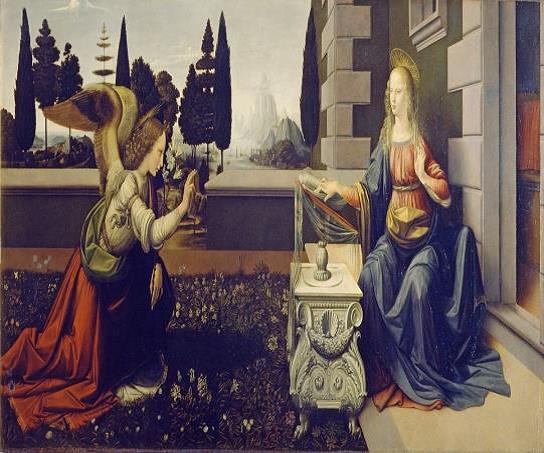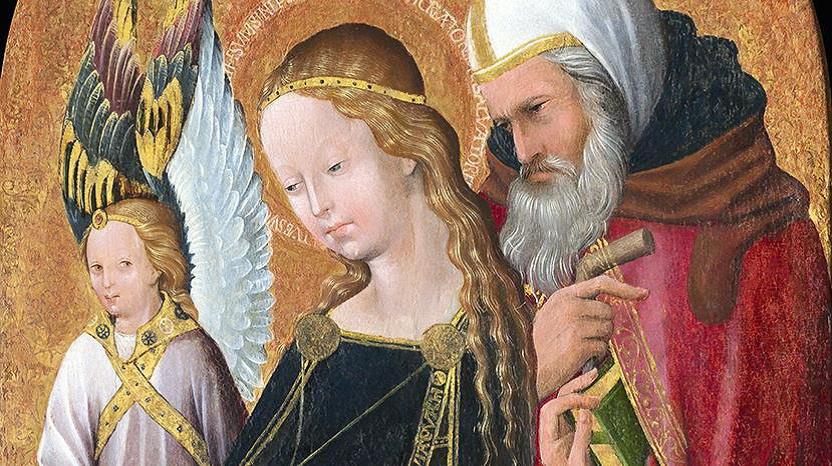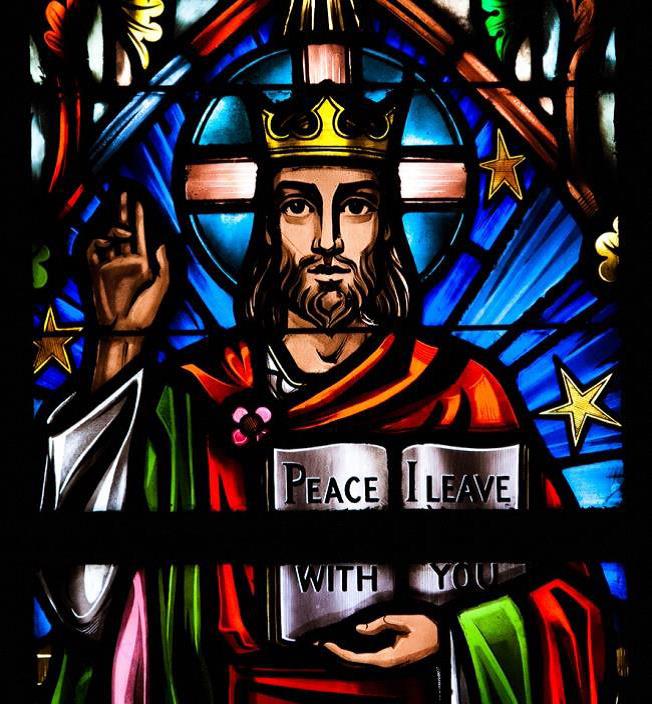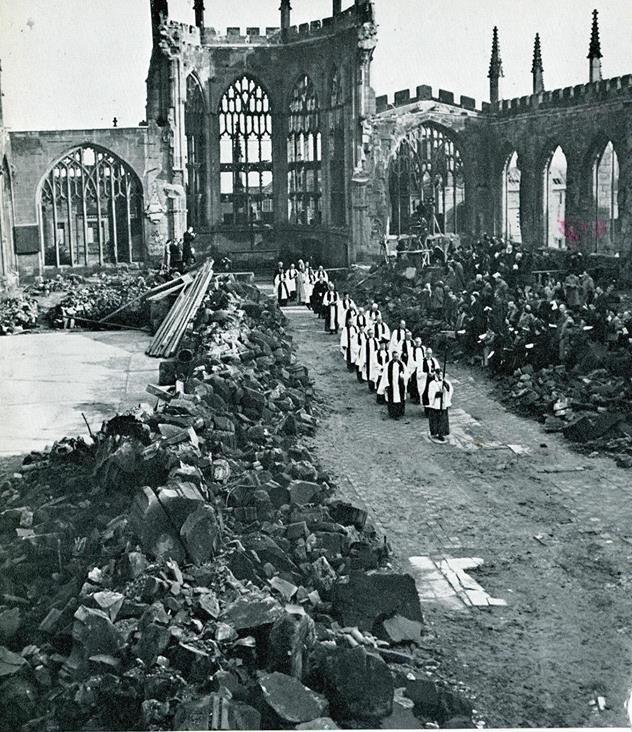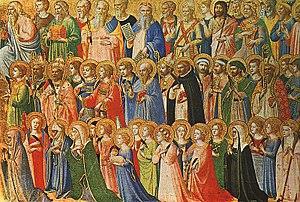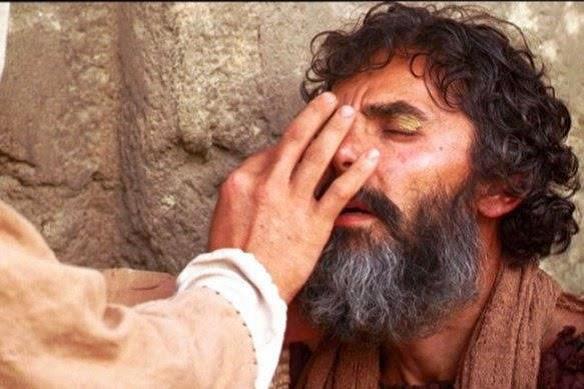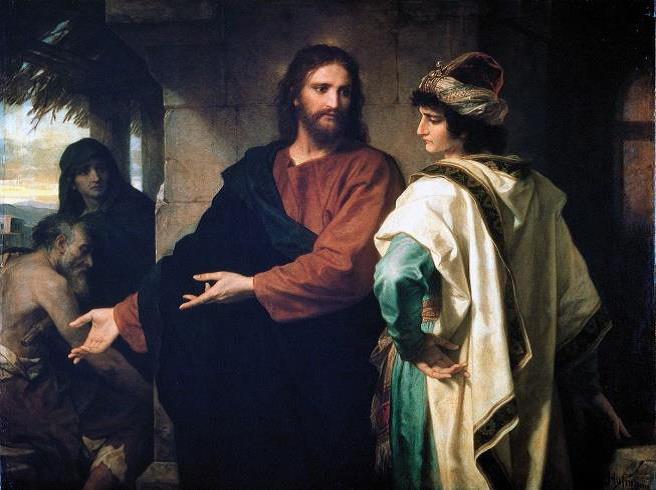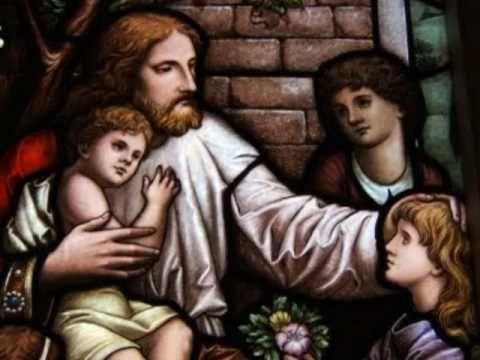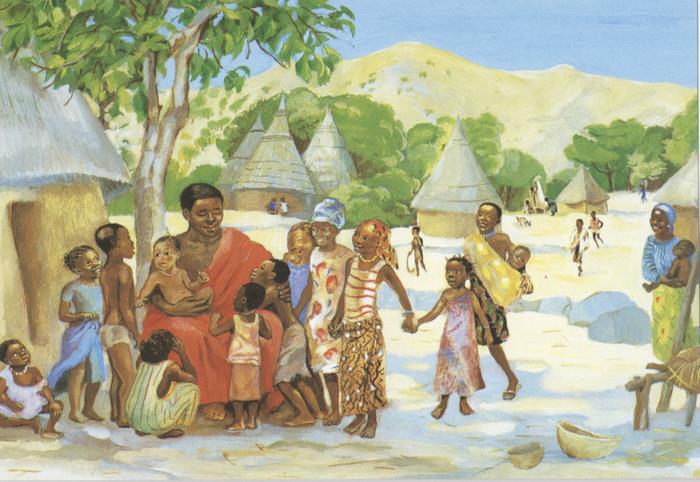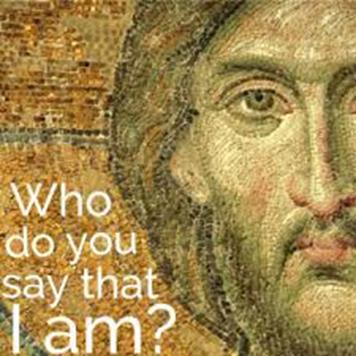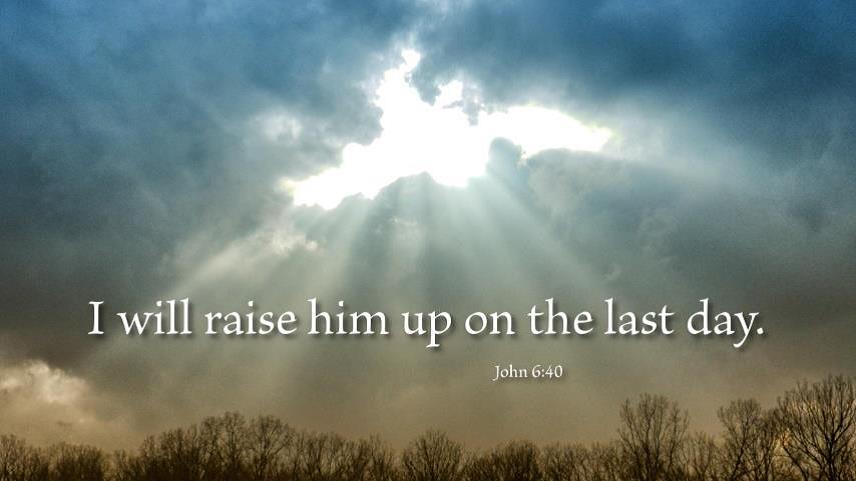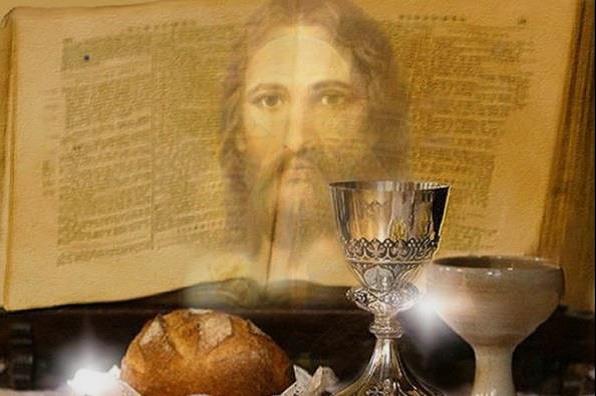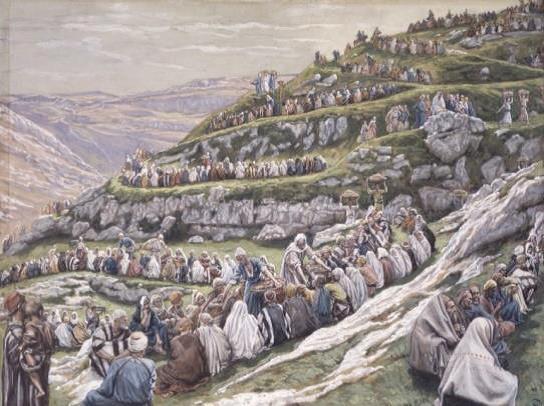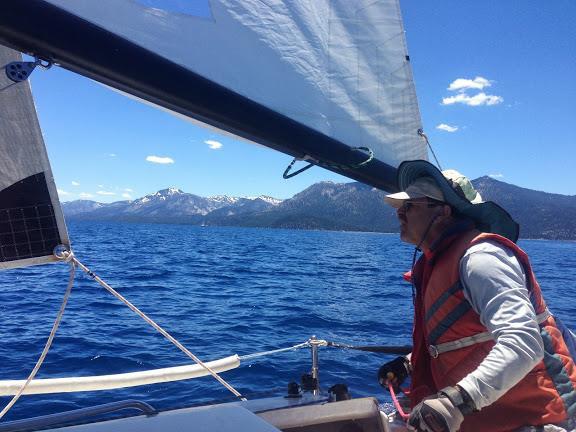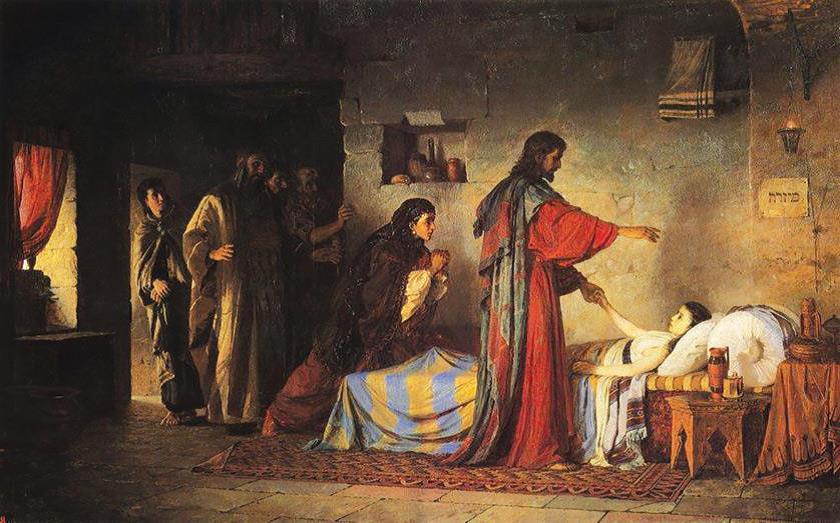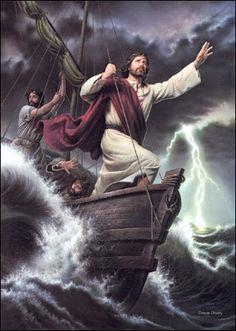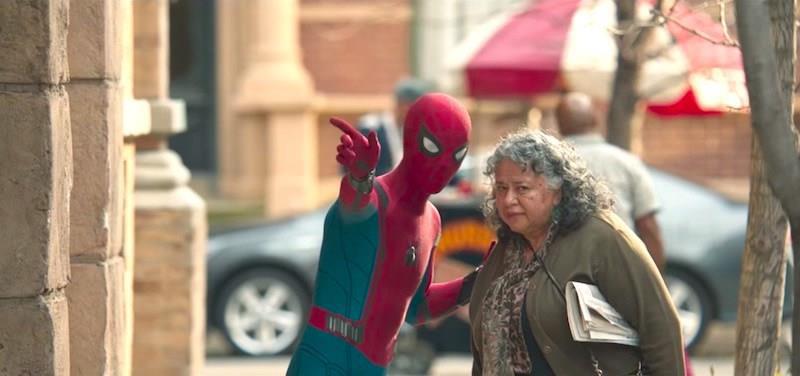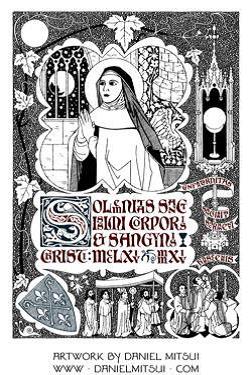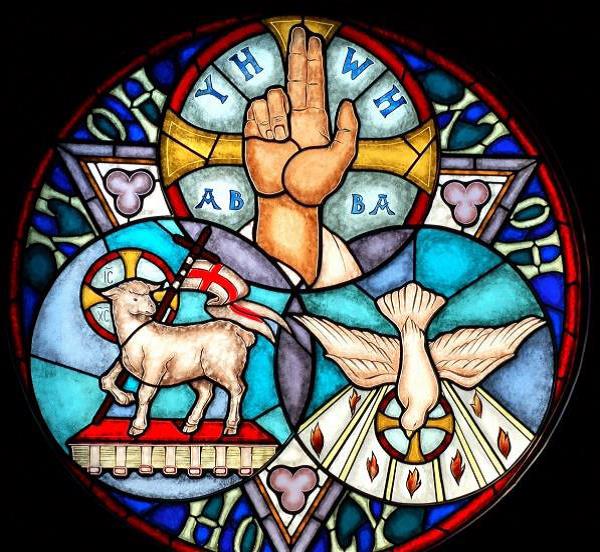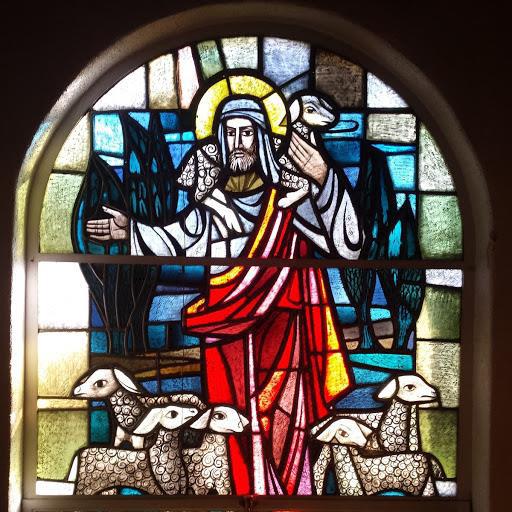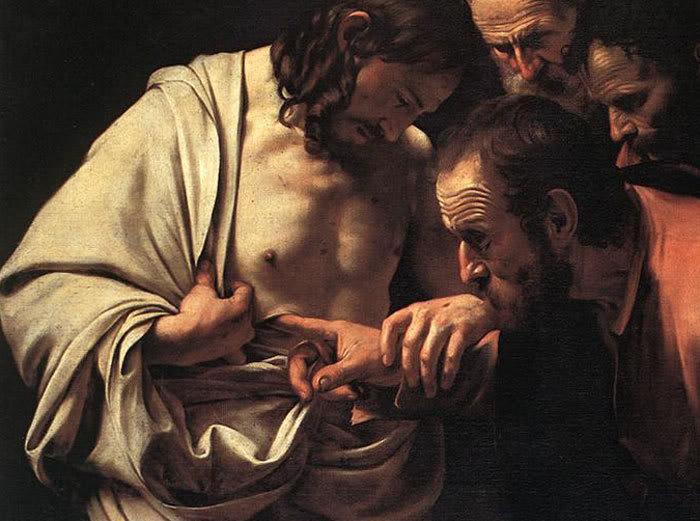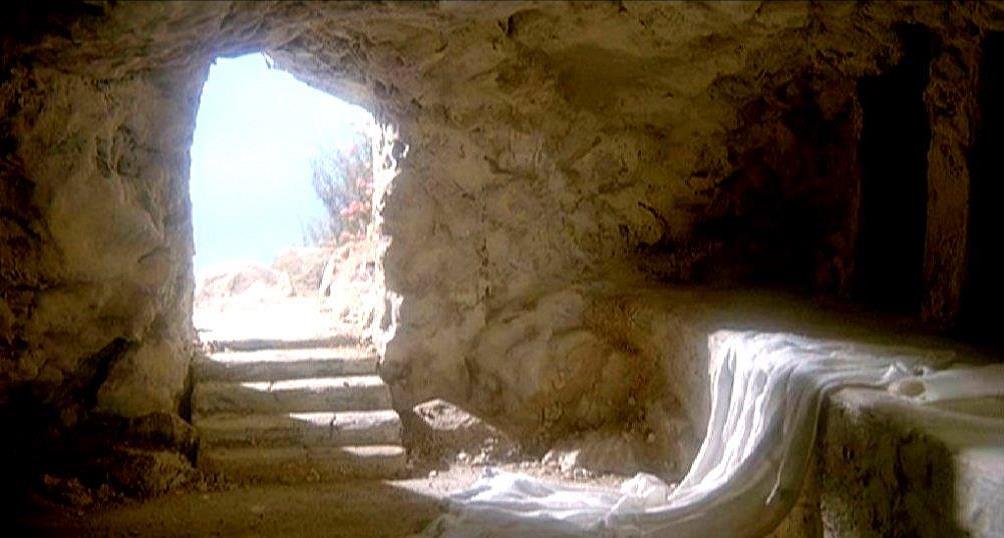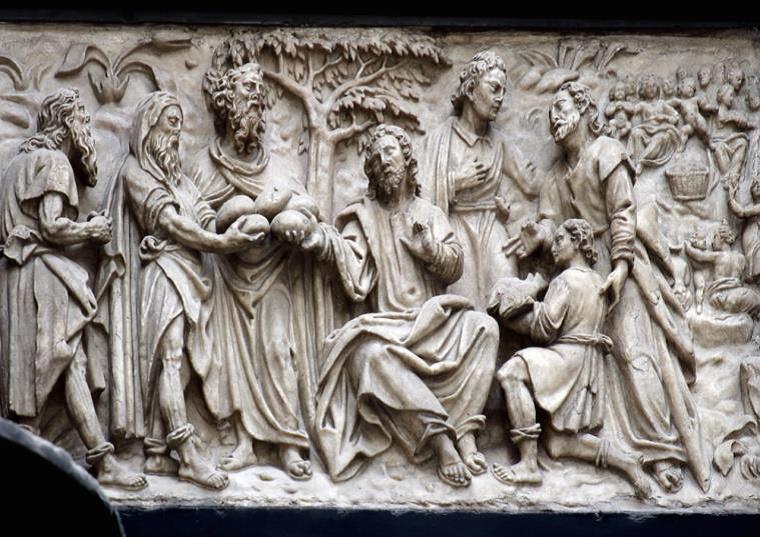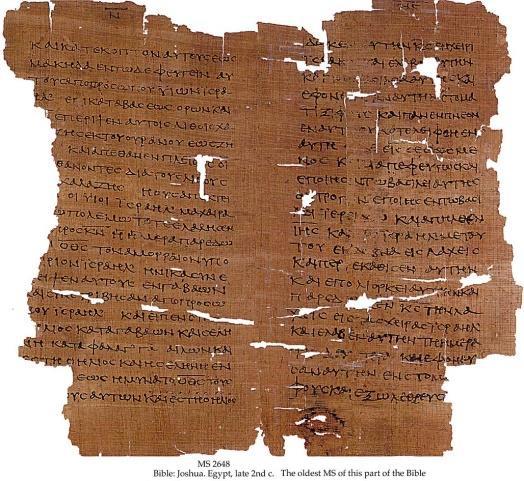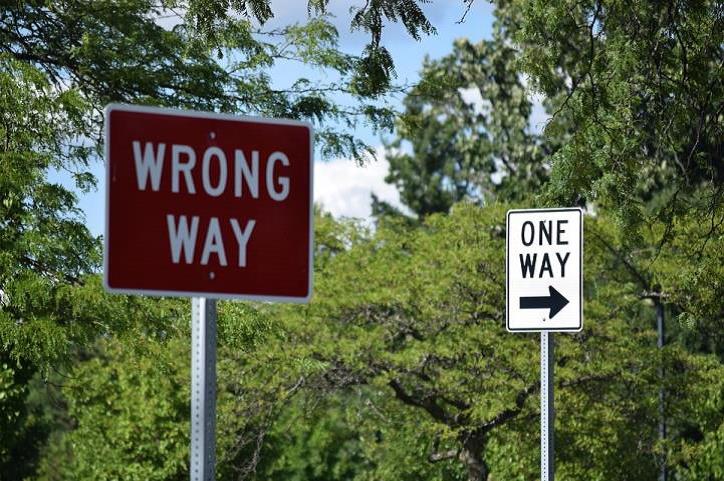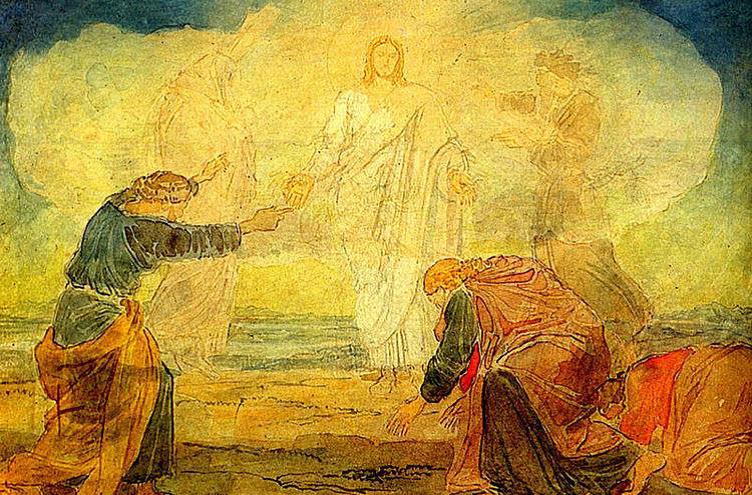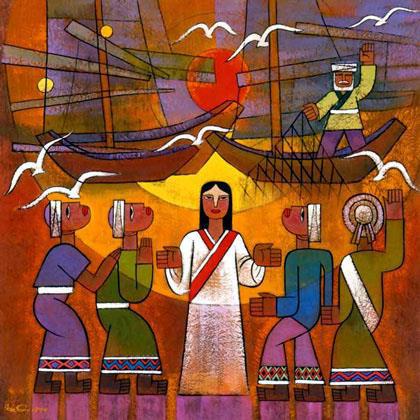|
|

“Jesus Is Simply the Word of God”
This Sunday and Beyond - December 30, 2018
Get it in PDF form with calendar
There is a very powerful section of the Bible, given to us by the inspiration of the Holy Spirit through the writing of John the Apostle, which describes for us the coming of Jesus the Savior. It speaks of simplicity; it speaks of divine timing; it speaks of ancient times; the description draws us in. But it says nothing about a manger scene, or shepherds, or wise-men. John leaves that to his fellow Gospel writers Matthew and Luke. What words, then, can match such a description?
Here are two of the sections of the first chapter of the gospel (the “good news”) about which I’m describing. May I leave it to you to apply the description I provided to these passages?
1 In the beginning was the Word, and the Word was with God, and the Word was God. 2 He was in the beginning with God. 3 All things came into being through him, and without him not one thing came into being. What has come into being 4 in him was life, and the life was the light of all people. 5 The light shines in the darkness, and the darkness did not overcome it.
14 And the Word became flesh and lived among us, and we have seen his glory, the glory as of a father’s only son,[d] full of grace and truth. 16 From his fullness we have all received, grace upon grace. 17 The law indeed was given through Moses; grace and truth came through Jesus Christ. 18 No one has ever seen God. It is God the only Son,[e] who is close to the Father’s heart,[f] who has made him known.
The Church’s liturgy continues this Sunday (the Sunday after Christmas) ringing in the celebration of the Word of God, Jesus, with a joyful noise. We will hear again of uplifted voices, trumpets and horns, and melodies of praise. We will hear the ancient Jewish prophets once again tell of Israel’s liberation from captivity by God’s mercy and eternal love. O radiant Zion!!
Both the prophet and psalmist lead us who come and worship with the singing of God’s power and salvation. God has shown the might of His holy arm, they say. If
this should remind you of the mighty and miraculous works of God which caused the people of Israel to be able to escape from the bondage of the Egyptian Pharaoh, then you are exactly right in making the connections. And the songs they sang following their salvation! The songs of Miriam, Moses’ sister. The song of Moses, himself.
The coming of the Word of God into the world (and as we encounter him as the Christ child) fulfills all that the Exodus and the return from exile prefigured. Yes, pre-figured. God’s eyes were wide open then, so to speak, and wide open with the incarnation of the Word of God.
In the Word of God come to us (his name in this manner is Emmanuel, God-with-us), God sent the only possible solution to the end that all nations covering the earth will see the victory of God over the forces of sin and death.
And so, our Gospel for the first Sunday after Christmas reveals that Jesus is in fact the Word of God, the one through whom the universe was created, the one through whom the universe is sustained.
In speaking to us through His Son, God has unveiled a new age, the last days. That’s the NEW Zion, and the NEW Jerusalem!! And my friends all of God’s people will be singing and rejoicing those same loud and beautiful songs about God’s plan for us, and his creation. The new age is a new creation. In the beginning, God spoke His Word and light shone in the darkness. Now, in this new age, He sends us the true light to scatter the darkness of a world that has exiled itself from God.
He is the one Isaiah foretold – who brings good tidings of peace and salvation, who announces to the world that God has come to dwell and to reign (see Rev. 21:3–4).
So we sing a new song on Christmas Day, and we take the time for 12 days to keep singing that new song about Christ being among us. It is the song of those who have believed in the Christ child and been born again – by grace given the power to become children of God.
(with credits for portions of these reflective words to Scott Hahn)
Father Robert Eaton, Interim Rector
|
RETURN TO TOP
“More to the Story than perhaps you knew”
This Sunday and Beyond - December 23, 2018
Get it in PDF form with calendar
You know the plot lines of those movies and those novels where the whole story has been built around one particular person, usually what is known as “the protagonist” (as contrasted with the story’s “antagonist” – THAT word we surely know!), and then - WHAM! – you are introduced to a whole new person, and you thought FOR SURE the author was pointing to your expected protagonist!
There’s a tingle in the hearing or in the reading or in the viewing. The drama is suddenly heightened, and you are drawn further into the story.
Actually, it could be your story we’re talking about. And it could be negative, or positive.
For instance, at your work the person to whose position in the company you have aspired decides to retire. You even talked to that person about helping you be the successor. But – boom - at the office retirement party, the boss introduces the new person to take the vacant position. This brand new person completely changes your whole career scenario, and you are crushed.
In a more positive situation, you are happily going along in life, you get married, and you have plans for the future, and then comes the news - boom - you are pregnant. This brand new person completely changes your whole career scenario, and you are elated. You are surprised and perhaps alarmed about what this means. But you are also elated.
This is something of the scene for us in the Christmas Story. On Sunday, December 23, 2018, and what is known as the 4th Sunday of Advent, you will hear a moment like this.
Let’s set the scene leading up to it. As the Christmas Story moves along, we know that an Angel from God visited Mary, and she was told that she was favored or blessed by God to carry out an incredibly important part of what God wanted to do to save and redeem His People from their own ongoing disobedience of Him and His ways, and His resultant death. She would become the mother of the One who had been prophesied to be that savior, redeemer, and who the Jewish prophecies often named as Messiah. So, she says to the Angel, “Yes, I agree to do the Lord’s bidding”, or more traditionally, “Let it be done to me,” All of this was prophesied so many years and centuries before. In that visit from the Angel, we hear that greeting in the Latin text, “Ave, Maria”, or “Hail, Mary, full of grace (or, “highly favored one”); that she will bear a child, who, mysteriously and incomprehensibly, the Apostle John would identify as The Word of God, the Son of God, God Himself (John 1:1ff). The angel says in the message to Mary, “you will name him Jesus [which means “God Saves”]. He will be great, and will be called the Son of the Most High, and the Lord God will give to him the throne of his ancestor David. He will reign over the house of Jacob forever, and of his kingdom there will be no end.” And the Angel also answers Mary’s question about how this might be so, since she is not married, and thus she means she has had no conjugal relation, and is not expecting to do so. The Angel tells her that this conception is not going to happen by human means, or as the Apostle John would also say, “not of the desire or will of man” (John 1:13-14). So, the story has reached very quickly a high level of drama and anticipation, with four, maybe five, very important characters in the story: an Angel from God; Mary, who has received the message, God Himself, a child to be conceived, and another person who will become the baby’s Guardian Father on earth.
It is an extraordinary story just as it stands in this telling, so far. And we are left to wait for the child to be born, and see what comes of it all. Our minds and our hearts are engaged by the possibilities, and, like any good story, we find ourselves drawn into it, meaning, the people and the setting those people inhabit.
And then comes the last Sunday before Christmas. Quietly we are reintroduced to Mary, she’s now pregnant, and she’s on a little trip to the hill country to visit some relatives. It’s not time for her baby to be born; it’s a very traditional time in the Hebrew culture of being with relatives while in the first trimester of a pregnancy. That’s nice. Very healthy respite; very civilized. And then comes this surprising add to the story; and it’s not just Mary’s cousin Elizabeth. It is the baby in Elizabeth’s womb!
As you will hear the story on Sunday, “ When Elizabeth heard Mary’s greeting, the child leaped in her womb. And Elizabeth was filled with the Holy Spirit and exclaimed with a loud cry, “Blessed are you among women, and blessed is the fruit of your womb. And why has this happened to me that the mother of my Lord comes to me? For as soon as I heard the sound of your greeting, the child in my womb leaped for joy.“
Four things suddenly inserted into the story, all positive parts, all FURTHER heightening the Christmas story, all adding the length, the heighth, the depth., the width, to the glory of the story, as if a sudden shot of story adrenalin -- call it “delight!” -- has just been injected above and beyond where the story has already taken us. And, of course, there is even more to come.
Here are the four things: Mary has family, and that family is now further witness as to what is happening with Mary. This gives strength to the prophecies, and to the validity of Mary’s telling of what took place with the visitation of an angel. The story is truly, truly affirmed.
Second, we now know from whence comes the second piece of what we make use of devotionally, the “Hail Mary.” The first part comes from the Visitation of the Angel; the second part, “Blessed art thou amongst women…” comes from the Visit of Mary to Elizabeth, as Elizabeth has her turn being filled with the Spirit and immediately praising God.
Third, from this visit to Elizabeth we are given that amazing song of praise and devotion and humility known from the Latin as the “Magnificat”, the Song of Mary, which begins, “My soul doth magnify the Lord, and my spirit doth rejoice within me.” What a jewel of the Christmas story.
And finally, the character of John the Baptist is introduced, not by prophetic word that he will be coming, but in his very existence. It has been said that the first human being besides Mary to recognize the existence of the Messiah, the Son of God in His incarnation was an unborn child, that is, still in the womb, and yet able to discern the presence of others, and in this case, the Son of God.
These are powerful things to consider, both as already being a disciple of Jesus Christ who has come, and will be coming again, but also something to consider if you have not yet believed!
If all you had was a little manger scene, and a romantic notion of somebody’s love, you story has now been interrupted and certainly enhanced by so much more! This is a great story – a true story – made even greater. It is exciting to hear it again.
Hope to see you at the Christ Mass. And hope your season is Merry!
Father Robert Eaton, Interim Rector
|
RETURN TO TOP
“The Bible is and contains and points to Reality”
This Sunday and Beyond - December 16, 2018
Get it in PDF form with calendar
“The world is coming to an end. Jesus is coming.” I have said that out loud before, but I never attracted any attention by it. Nor did anybody say, “When?” or “Tell me more” (well, except in bible study classes, and those people were sitting down with me already). But there are certain people who seem to be able to draw a crowd when talking about the end times, and will listen intently while the speaker goes on and elaborates. We say those speakers are those with “charismatic appeal”, where “charismatic” means something like exercising a compelling charm which inspires devotion in others: Perhaps in some cases, it means mesmerizing.
Our Gospel reading for Sunday, December 16, which is the 3rd Sunday of Advent this year, tells about St. John the Baptist finally appearing according to prophecy from before he was born, out in the wilderness beyond Jerusalem, on the other side of the Jordan River. He’s talking loudly about the coming of the Messiah, about repentance, about life and death, the wrath of God coming to the People of God (not just the rest of the world!). And people are FLOCKING to hear him. “MULTITUDES came out” not just to hear him, but were influenced to actually do what he was telling them. He told them to REPENT, be BAPTIZED for the repentance, and then go do things for other people. I’m not convinced that the charismatic definition of either “compelling charm” or “mesmerizing” would fit, although by all accounts he was quite the sight to behold. But there was something….
Yes, there was “something on him” as some people say. People came from near and far. And they didn’t just pass him by, or turn around and go home, without seriously considering what he was saying. Not everybody who stands on a street corner with a sign that says, “Repent!” has that response. This something on him was the Holy Spirit of God: the Holy Spirit was on him from before he was born, God had His will spoke out by others – including an angel – and planted within him from his very beginnings; the Holy Spirit led him to the wilderness; the Holy Spirit told him what his message was to be, and he spoke it; the Holy Spirit alerted him to see Jesus as the Lamb of God when Jesus also came to the Jordan River.
But if you didn’t already know all that had brought John to the wilderness to preach, what else might tell you that, at the least, there was something authentic about this guy? What would tell you that all these people – multitudes! - weren’t in fact just being mesmerized by this charismatic figure? There’s enough bad stuff going on in the world, in every facet of our lives. We don’t need to be detoured, to get off on the wrong road.
I do a lot of driving, both long-distance and around town. I have seen a lot of directional signs. And mis-direction, unfortunately. The clearest directions usually have an arrow, and a more luminous color. And then even if it is clear, if you are not paying attention, you finally WILL be paying attention when you go right on by the exit or turn!
When we’re talking about whether the voice of one crying in the wilderness is a clear road sign or just being mesmerizing, it all has to do with the pointing. And very clearly with John the Baptist, he did not point to himself. He pointed beyond himself, to the one who was coming, Jesus of Nazareth, the Son of God, the Lamb of God, the Messiah. The people wondered whether John was himself the one to come. And his answer was simple, and pointed, “I baptize with water; but he who is mightier than I is coming…. he will baptize you with the Holy Spirit and with fire.”
And then shortly after he began his proclamations and preaching, Jesus did come to the Jordan. Jesus will be coming again! And it is now our turn to wait and watch and be prepared. While we wait, we are to continue to follow John’s directions, which have been repeated by Jesus himself, and those Apostolic witnesses and teachers following Jesus. We are to do these things: Repent, Be Baptized in water (but now in Jesus’ name), and receive Jesus’ baptism with the Holy Spirit. We will then be in practice, in our own right, those who proclaim the Kingdom coming. You won't know if perhaps your ministry is intended by God to be heard by multitudes until you do it.
Father Robert Eaton, Interim Rector
|
RETURN TO TOP
“The Bible is and contains and points to Reality”
This Sunday and Beyond - December 9, 2018
Get it in PDF form with calendar
I love it when archeological digs in Israel, and in other parts of both ancient and less-ancient eras, conclude that a bible historical description was “right.” This just happened again recently with the discovery of Sumerian clay tablets that recorded a Babylonian slave trade from early Israel (actually, Samaria, the Northern Kingdom). Of course, the tablets were discovered several years ago. But, you know, sometimes it takes a bit of time to translate from Assyrian or Babylonian! But then the results are published, and some publication will post the results, and Voila!, we have biblical affirmation!
We don’t have to wait for archeology to substantiate the reality of the Bible. But when it does happen, it gives another boost to both those who are already the Faithful, and to a world desperately looking and waiting for absolute Truth – desperately, because there is no other truth that does not fail.
Along this line of realities, one of my favorite readings from the Gospels is the one that we will hear on Sunday, December 9, 2018, this coming Sunday -- you are cordially invited to attend our 8am or 10:30am service to hear this lesson read, and worship with us! The reading from the Gospel according to Luke is a favorite of mine because it very precisely “dates” a particular time and moment leading up to the appearance of the adult Jesus of Nazareth, the Messiah, the Christ, amidst the Jewish people, the chosen People of God. That’s just as good as digging something up out of the ground.
This is part of the Gospel to be read to which I am referring:
“In the fifteenth year of the reign of Tiberius Caesar, Pontius Pilate being governor of Judea, and Herod being tetrarch of Galilee, and his brother Philip tetrarch of the region of Ituraea and Trachonitis, and Lysanias tetrarch of Abilene, 2 in the high-
priesthood of Annas and Caiaphas, the word of God came to John the son of Zechariah in the wilderness;”
It’s like taking a pair of historical binoculars and ZOOMING IN on a moment. The moment is not yet about Jesus; it is about John the Baptist. We had already heard in the Gospel the prophecy about John, that being what his ministry job was all about. His job, prophesied (you can say foretold), was to be in the wilderness and announce that the Savior was coming soon, and quickly. That’s the “John the son of Zechariah” at the end of that Gospel sentence.
A theology lecturer from the Seminary of the Immaculate Conception in Huntington, NY, and then at Boston College, Michael Himes, was quoted by one of his students to say that, “This is the most important line in the entire Bible.”
This one? Really? Why? Himes said it shows that our faith is based in reality. Our faith is not based on “Once upon a time…” This is not a fairy tale. It is not an abstraction. Luke goes out of his way to tell us in this time and in this place, “when Tiberius Caesar was in the 15th year of his reign, Pilate was governor, Herod was king… the word of God came to John in the wilderness.”
We, too, have an incarnational faith. We live our transcendent faith in this time and in this place. We listen for the Word of God that comes to us in the wilderness of confusion, in the midst of anxiety and fear. We do not take our current, contemporary context and, reading from old and outdated philosophies of “how to get along” try to make sense of things. That philosophy of life only says “now” is real, and whatever else is not. Perhaps helpful, but not real
Our lives as Christians would have no meaning if that was the case. We believe in the resurrection of Jesus Christ and that He is thus ALIVE. And therefore REALLY accessible and available to us now.
John the Baptist was real. His message of repentance was real. His message pointing to Jesus coming was real. And then one day, this Messiah, the one known in heaven, and in scripture from prophecy as the Lamb of God, shows up on the scene with John the Baptist. That’s reality.
Even better, because this is not an abstract faith, context matters. And that means I Matter to God. You matter to God. YOU are REAL to GOD. And that is absolutely the Truth, and it is absolutely life-changing.
Yes, as Jesus has also told us of the reality of what is to come, it may feel like our current reality is the wilderness still! But we are encouraged to know that He has come to us, and was victorious over death, and then He is coming again.
The long awaited moment of the advent of Jesus Christ was pinpointed in the Gospel to the forerunner, John, the messenger telling us of his soon arrival. The Bible tells us what that exact time was in reality. Through those reigns of those particular people, Jesus’ mission of real mercy and real compassion endured for three years. And the then, long after the reigns of Emperor Tiberius, and Pontius Pilate and Herod and Annas and Caiaphas, Jesus mission of real mercy and real compassion and hope continued throughout history in His Church – beyond good times and bad – until right now – our current reality - and we know it will continue until God’s final time for the real world as we know it is fulfilled, and our new reality comes into being.
Believe it. It’s real.
Father Robert Eaton, Interim Rector
|
RETURN TO TOP
“Advent: Earthly doings with Heavenly Import”
This Sunday and Beyond - December 2, 2018
Get it in PDF form with calendar
Advent season is now upon us. If you are not sure what the word Advent means, my apologies. It is used sometimes in many Churches as shorthand as a way to refer to the weeks before Christmas. The word Advent has been used for a very long time. You know already I’m going to say Latin, right? Yep. Adventus, “arrival”, or in the verb form, “to come”. So, you start with the celebration of Jesus’ birth. Then you add in the preparation for the celebration, which takes a little time of course; we want to make sure we are reminded when the angel visited Mary and told her she was going to have a baby, and she agreed to it. Then you add in the OTHER “arrival” of Jesus, that is, when He comes the SECOND time at the end of what we would call time as we know it. And now you’ve just added in Apocalypse, and “Revelations”, and “Judgement Day”. And now we need a little more time to prepare and talk about all that. Oh, and there’s ANOTHER arrival: not just when Jesus was born, but when He shows up on the scene at about age 30 prepared to engage his public ministry as the Messiah. So we need to add in the prophecy and teaching of John the Baptist, who was Jesus’ forerunner.
It’s kind of amazing the season of Advent only covers 4 Sundays!
It’s something like saying, “the advent of the computer.” If you were to celebrate that every year, you’d have to have a season created to talk about all the history of it, before the actual day of celebration! And, of course, take the time to download the Computer Feastday app.
Here’s a question for you to think about….are there more computers (and we have to add in smart phones now into that definition) on the face of the earth than there are Christians currently?
The factual answer is that, although there are more gadgets in use than the world population (7.2 billion people), the latest I saw was 2 billion PC’s in use, plus an estimated 2.71 billion smartphones. I’m leaving out the tablets. So that makes 4.71 billion “computers” in use today on the face of the earth. Christians make up about 2.3 billion of the earth’s population (the largest at 33%), although it could be much bigger number if it weren’t for the average 160,000 Christians deliberately martyred for their faith each year.
There is another answer to that question besides the factual one, of course. When people are looking for answers to their lives, where or in what are they putting their hope? Does knowledge plus speed plus cyber collective equal eternal satisfaction? Of course not. But it does obviously seem to be a panacea for earthly satisfactions. This is an illustration (and I’m not denying any benefits) of how humanity has always put their hopes and desires into things of earth rather than eternal things.
That seems like a facetious thing to say these days. But that’s because it is so difficult today to conceive of a world without computers, and yet we went from Zero to more than Seven Billion in only 4 decades. It is not a facetious reflection. It is not frivolous; it is not simply amusing. It is a serious question that has to be asked always, about our time, our priorities, our ability to look beyond ourselves, to hear truth in its purity.
You know why we don’t have an annual celebration for computers? Because they keep becoming obsolete! We can’t celebrate anything but the creation of the thing; and then we complain or laugh at how primitive it all was in the beginning.
My friends, there is nothing primitive about the Love of God prepared for us to live in. And that’s why we can keep coming back to a season of preparation for the coming of Christ. It is not only about what took place, and what He can be in our lives now, and about what has yet to come, it also about proclaiming this advent news from the housetops! We want the whole world to know who He is and that He is here for All, and won’t you please join us so you can be with us when He does come again!
And He never becomes obsolete; you will never have to trade in or exchange the Old Jesus for a New Jesus! Just be prepared now for when He comes again. That is not a new market device advertisement to tease you. The Prophets for centuries did not tease; they spoke forth. And then He came as a baby born, and then He proclaimed and acted in power for three years; and then He rose from the dead, and now we look forward to His coming again. Jesus said, “ Then they will see 'the Son of Man coming in a cloud' with power and great glory. Now when these things begin to take place, stand up and raise your heads, because your redemption is drawing near."
You know what that tells me? It tells me that I matter to God. It tells me that He sees me, and knows me. It tells me I’m not a commodity; He desires me in His presence because He made me. It tells me He has always been, and always will be. It tells me I should take time to consider the ramifications, and take the time to prepare myself. And it tells me that as long as I am searching for Him, He will never be out of range. Advent and the season of arrivals, and my preparation within it, puts me in good position to see what’s REALLY important in this life.
Father Robert Eaton, Interim Rector
Note:The Expectant Madonna with St. Joseph. National Gallery of Art, Washington, DC
|
RETURN TO TOP
“Reminded gladly, He IS the King!”
This Sunday and Beyond - November 25, 2018
Get it in PDF form with calendar
As we get past Thanksgiving Day and closer to the season of Christmas (which seems pretty obvious at this point from the perspective of retailing, in case you weren’t sure from the Christian calendar), it is kind of jarring to hear the Gospel lesson for Sunday, November 25, 2018. This is the Sunday that ENDS the Church calendar year, headed into our season of preparation for the coming of Christ. The Gospel begins like this,
“Pilate entered the headquarters again, summoned Jesus, and asked him, "Are you the King of the Jews?" Jesus answered, "Do you ask this on your own, or did others tell you about me?"
Most who know the story of Jesus know that this conversation with Pontius Pilate, Roman governor of Jerusalem, is just hours away before Jesus is crucified. Doesn’t seem quite appropriate for after Thanksgiving and before Christmas, when Jesus was born. But this is in fact a follow-up conversation due to the fact that Jesus WAS born into this world. And that the King who was coming, has come. And that the King must suffer at the hands of those who are only in control of things because its God’s world in the first place. At the end of the Church year, all things leading to the proclamation that Jesus Christ is Lord of Lords, and King of Kings, we are reminded why he needed to be born – and to die for us -- in the first place. And that’s illustrated by the prayer he taught his disciples: “Thy kingdom come, thy will be done.” Even though our world is created by God, He still has yet to be honored and respected and accepted as the King of all Creation.
Pilate asks the question, Are you in fact the King of all Creation? And Jesus says basically in reply, Yes, I am. How did you figure that out?
Have you figured that out yet?
I think the longer we are followers of Jesus, being mindful of who He is and of where we want to be with Him, the more we understand that there is a kingdom, and there is a King, and He didn’t get generated from THIS side of things. In other words, Jesus is not King from out of his own creation. And he said that to Pilate, “My Kingdom is not FROM this world.” So, we keep looking and hoping in the midst of terror and hardship and calamity and destruction, for that other Kingdom to come, and as soon as possible.
This is why Christians do and should be coming to worship together all the time. Because there has got to be a different kingdom out there besides this one. And every time we come together to celebrate the King of Kings, that is, every time we hear and are thus reminded that he is in fact that King, and every time we gather to hear of his kingdom, we gain in hope and faith to continue living here, now. And how do we know this? How do most Christians get this? Because, unlike Jesus’s question to Pilate, as Christians we have chosen to believe that Jesus is in fact the King of the Jews, and the King of all Creation. Its not a rumor; it’s our believe and faith. We know where He came from; and we know where we also want to be forever.
This Sunday not only will we hear of the Kingdom to come, and of our great and glorious and humble and sacrificial King, Jesus, we will also be presenting ourselves in a very tangible way as a response. Through cards we have marked and place in the offering plate, making an offering of our material lives by our intentions for sharing financially, we are recognizing the King who needs to come. We already know it was all his in the first place, and that he has given us such provision. But in this way, we continue our desire to say that even OUR kingdom is not the one we ultimately want, and HIS kingdom is the one we desire.
While we wait for His coming again, we work and pray and give for His Kingdom to be here on this earth. Even the slightest bit of His Kingdom will be immeasurably profound in making a difference in the world we live in.
Father Robert Eaton, Interim Rector
|
RETURN TO TOP
“You’re in Good Hands with Jesus”
This Sunday and Beyond - November 18, 2018
Get it in PDF form with calendar
If anyone from Paradise, CA, were to hear the gospel lesson that will be read in All Saints’ this coming Sunday, my guess is that they would end up in tears in the pew. If you’ve been following the California wildfire news at all in the last week or so, you know that Paradise --- and how strange a juxtaposition is this – was the epicenter of hell on earth. The entire town wiped out by fire in a very, very short period of time. I’ve just heard today that the Episcopal Church, St. Nicholas, and the Lutheran church across the street are both intact. There’s not much else left standing in town, with 6000 structures demolished. Buildings with block wall construction have walls still standing, but the entire contents demolished. People’s homes burned right down to the ground. And so precious little warning – folks talking on the phone to alarmed family and neighbors, looking out their kitchen windows and seeing the fire – licking at their redwood decks. So, no time to grab anything, just “get out!”
Let me share the reading with you here:
Jesus said, "But when you see the desolating sacrilege set up where it ought not to be (let the reader understand), then those in Judea must flee to the mountains; the one on the housetop must not go down or enter the house to take anything away; the one in the field must not turn back to get a coat. Woe to those who are pregnant and to those who are nursing infants in those days! Pray that it may not be in winter. For in those days there will be suffering, such as has not been from the beginning of the creation that God created until now, no, and never will be.” (Mark 13:14-23)
Of course, Jesus is speaking as prophet about what will be happening at the end of the world as we know it. What Jesus is speaking to has not yet happened. But those words will be extremely hard to hear by those who have lost everything RIGHT NOW. The emotional impact will be the same. What words will follow that can possibly provide some sense of comfort and good news for that current pain?
That’s not an easy question to answer. For some in such pain, no consoling will be acceptable despite the best and sincerest and most empathetic of personal ministry. Perhaps you’ve been in such a situation yourself? How did you get through it? Or have you? Read on, perhaps how others get through pain may be helpful for you.
So, for some, just being in church, the fellowship of the saints gathered around, will be of such a great surrounding comfort that hope can begin to emerge, even if only a mustard seed to begin. For some, knowing the real presence of Jesus Christ in the blessed sacrament of Holy Communion will provide a certainty that God has not left them, but is with them. They will find strength, thus, to return to the scene, and begin a new discipline of normalcy.
And some will hear the words of Jesus as the gospel reading continues on from the prophesied devastation and begin to see a new reality: they are alive. And for that they take the words of Paul to heart and know that thanksgiving to God is to be uttered in every situation.
Jesus continued to speak, “And if the Lord had not cut short those days, no one would be saved; but for the sake of the elect, whom he chose, he has cut short those days.”
I am reminded of the testimonies of so many who have come through disastrous situations only to question why they are alive and well, and so many others died, or were consumed in disaster in other ways. It can actually cause deep depression. And there are the testimonies of those who have found new purpose in their lives to make something of their lives that they hadn’t conceived of before. And there are those who simply became aware that life and death are so very fragile, but that God is the God of both the dead and the living, and now is the day of life, living, sharing, comforting, thanksgiving, building, loving. And there is a strange and mysterious, yet profound comfort knowing that these things have been spoken of before, these things that happen to us now, and things to come. They have not been spoken of by just any one – they have been spoken to us by the God of all Creation, and by His Son Jesus Christ, whose purpose in coming once, and again, is to save us.
And if anyone says to you at that time, 'Look! Here is the Messiah!' or 'Look! There he is!'--do not believe it. False messiahs and false prophets will appear and produce signs and omens, to lead astray, if possible, the elect. But be alert; I (Jesus) have already told you everything."
When disaster strikes, turn your eyes to Jesus. He is the author and perfecter of our Faith. Through his words, through his action on our behalf, through his knowledge of things now and to come, and through the encouragement he provides through His Body, that association of all his followers, we will find comfort and eternal life.
Pray for those whose lives have been devastated.
Father Robert Eaton, Interim Rector
|
RETURN TO TOP
“You’re in Good Hands with Jesus”
This Sunday and Beyond - November 4, 2018
Get it in PDF form with calendar
We are celebrating the Feast of All Saints on Sunday, the closest Sunday to the actual calendar day of November 1. I thought it would be good to talk about it briefly.
Actually, I really only want to talk about the reason such a day even came into being. If we were to consider all of the meanings and applications and reflections and theology that this day (and the days around it) have generated over the last 1200 to 1400 years, this would no longer be a brief reflection for Sunday’s lessons!
Let’s start where most people can jump into the discussion. Most of our society, and a great deal of the world’s cultures, get the idea of a saint, a person who showed in their lives – at the least - great wisdom, kindness, charity, long-suffering, gentleness, patience, you know. Even people alive get called such with those kinds of attributes, “You’re a real saint.” Familiarity is found, too, in the name of a holy person from our western culture and history: “San” or “Santo” or “Santa” is so prevalent around the world due to Latin, and the Spanish languages. So familiar that we often use and say those words without even thinking about what or to whom they refer!
This past week a friend posted a picture onto his social media of choice, of he and his wife at the Hearst Castle on the California Coast, just north of Cambria. It occurred to me that the hundreds of thousands of tourists who have also traveled there can have their memory of the tour quickly stirred if someone mentions the name of the town associated with the Hearsts -- that is, San Simeon. There you go, a Saint name. If we think about it for a minute, we do recognize not just a generic name but that the Rancho was there first, and it was named after a saint.
We can say, then, that people can make the connection, and then can reply, “Well, yes, it’s named after a saint.” Pushed further, they might be able to say, “Well, a saint is a holy person.” Asked to explain, they might just off the top of their head be able to say, “Well, they must have been really important.” Ok, that’s a start.
You may not know who Saint Simeon is, the one the rancho and thus town are named for at the Hearst property. Simeon was an old man who was told by God many years earlier that he would not die until he physically saw the Messiah having come to the People of God, the Jews. This was fulfilled one day while he was in the Temple yard, seeing that a particular woman and man across the way were holding a baby. That parents would bring newborns to the temple to fulfill certain Jewish law was a regular occurrence. But then the Holy Spirit revealed to Simeon that this baby was in fact the Messiah. He went over, took the baby in his arms (!) and said aloud, “Now, O Lord, you may set your servant free, for these eyes of mine have seen the Savior, whom you intend for all the world to see!” Mary and Joseph knew who the baby was. They were amazed, though, at this moment of revelation. And an older woman prophetess, Anna, would come up shortly thereafter on that same day and also proclaim the baby as the fulfillment of God’s ancient prophecies. What a day!
And a powerful, holy moment. And the church has recognized Simeon and Anna as Saints ever since! These are the kinds of saints we usually are all able to define.
But that’s not what got us to the feast of All Saints in the first place. In the first place, the day of celebrating All Saints had to do with recognizing martyrs, not necessarily prophets, or workers of holy healings and wonders. The word martyr means literally, “witness.” Martyr was used as shorthand in the first 4 centuries especially for those who came to believe in and follow the Messiah, Jesus, and then even when faced with immediate death would not relent, or recant, their faith in Jesus – they witnessed to it even more! And they were put to death. Witnesses unto death. Martyrs. Not like our culture’s “please don’t be such a martyr!” implying self-serving and ego attention grabbing! There is nothing self-serving about a sword over your neck, or a nail about to be pounded into your hands, or being in the center of a coliseum and the starving wild animals are about to be released, and refusing to give up your faith in Jesus!
The primary reason for establishing a common feast day was because of the desire to honor the great and mounting number of martyrs, especially during the persecution of Emperor Diocletian (284-305), the worst and most extensive of the persecutions. Quite frankly, there were not enough days of the year for a feast day for each martyr and many of them died in groups. A common feast day for all saints, therefore, seemed most appropriate. These kinds of remembrances (like we have now for 9/11, for instance) popped up around the Christian world through the 200’s and 300’s, and memorials probably after every instance of mass martyrdoms. Edessa, Syria, Antioch, Constantinople, Rome.
Eventually, in 609, the Emperor Phocas gave the Pantheon in Rome to Pope Boniface IV, who rededicated it on May 13 under the title ‘Santa Maria ad Martyres’ (or St. Mary and All Martyrs). The Pope chose May 13 probably because there was already a popular celebration already established in the East. John the Deacon wrote, “Pope Boniface, asked the [Emperor Phocas, in Constantinople] to order that in the old temple called the Pantheon, after the pagan filth was removed, a church should be made, to the holy virgin Mary and all the martyrs, so that the commemoration of the saints would take place henceforth where not gods but demons were formerly worshipped."
So, out came Zeus, Jupiter, Venus, Mars and a pantheon (literally, “of all the gods”) of lesser Roman gods, and in came the remains of martyrs collecting in the catacombs. Twenty-eight cartloads of holy relics of martyrs were said to have been removed from the catacombs and placed beneath the high altar.
Regarding the Feast day itself, apart from the designation of the new church “of all Martyrs,” the change to the designation of November 1 as the feast of All Saints started in Rome and then occurred throughout the rest of the Church over about 100 -150 years. Pope Gregory III (731-741) dedicated a brand new oratory in the original St. Peter’s Basilica in honor of all the saints on November 1, and this date then became the official date for the celebration of the feast of All Saints in Rome. St. Bede recorded the celebration of All Saints Day on November 1 in England before he died in 735, and such a celebration also existed in Salzburg, Austria. It was made permanent when Pope Gregory IV asked King Louis the Pious (778-840) to proclaim November 1 as All Saints Day throughout the Holy Roman Empire.
Of course, God knows who these martyrs were. And to him and to the Church they are Saints. The word of God, the Truth, was proclaimed by these, and could only have been because of the presence of the Holy Spirit in them. This is the beginning and the source of the
feast of All Saints – those ones through whom the Holy Spirit gave strength and who gave witness to Jesus Christ in their lives, in the face of death, and died for it.
We give thanks for mortal witness. We pray that we are never in that same situation. But we pray that when the opportunity arises, no matter the consequence, no matter how uncomfortable, no matter the personal loss, we too will be the living martyrs God. All the rest of the Saints.
Father Robert Eaton, Interim Rector
|
RETURN TO TOP
“You’re in Good Hands with Jesus”
This Sunday and Beyond - October 28, 2018
Get it in PDF form with calendar
At the beginning of the 1900’s there was a massive – massive – move of God through the Holy Spirit reintroducing the Body of Christ – this massive move was felt by everybody, everywhere, and internationally – to the power of God, God’s great works, God’s presence known, seen, felt, heard, tasted, touched, transforming. It was so powerful and encompassing, and world-wide, that many people believed it was the movement of the Holy Spirit prior to the second coming of Christ, either immediately, or in just a short time. I suppose you could say, “Unfortunately”, the second coming did not take place. It was left for a later time. Much of what we see of the modern and contemporary Pentecostal movement came from this time; I say modern and contemporary because there have been “outpourings” of the Holy Spirit in big, big ways ever since Pentecost itself, 2000 years ago. You cannot build walls to keep the Holy Spirit in only one place at one time. And so this massive move of God spilled out into all of the Churches. Certainly, as is common to mankind, some of those bodies of believers would reject these outpourings, including this massive world-wide move of God in the first two or three decades of the 20th century. Some Christian bodies had been becoming more open to the need for the work of God to be revitalized through evangelism, missionary work, and ministry to the world’s less fortunate in very intentional ways. The Episcopal Church, and so much of the Church of England, and thus Anglicans throughout the empire; as well as other major groupings of Christians, were interested in working together on these areas of Christian concern. Evidence of this concern showed itself in the “World Conference on Faith and Order” held in Lausanne. Switzerland, in 1927. In any case, apart from the Pentecostal revivals, this same desire for seeing God’s mighty hand at work created an openness and willingness to see how the Holy Spirit could work in the Church again.
This influential atmosphere affected quite a few English and American Anglicans, who then began to look for God’s work through answered prayer, including seeing physical and other healings taking place through anointing and the laying on of hands. The Rev. John Gaynor Banks was one of these Anglicans, and along with his wife Esther, after taking on a new ministry called St. Luke’s, in the North Park neighborhood of San Diego, along with the provision of an older chapel building provided by All Saints’ Episcopal Church in the Hillcrest neighborhood (That’s Us!), eventually founded the Healing Order of St. Luke. They didn’t classify themselves as Pentecostals; they were serving in the Episcopal Church with the power of the Holy Spirit! They didn’t give up one label for the sake of a different label; they stayed as called by God, and were thus apostles of the expansion of the Kingdom.
Now to the story. The Banks, along with a few others, eventually fine-tuned a teaching and training tool for those who also wanted to be involved in healing ministry. They crafted a bible study outline – fill in the blanks – that could be used for every single story of healing in the entire bible. And then, especially in discussion in a small group (it could be done individually), people learned how God moved in healing, and especially through Jesus’ ministry.
One of the things the Banks found in their own prior study was that there was NO ONE WAY that Jesus brought about healing in people’s lives. This awareness was part of the Banks desire to have others study the stories, so they could see the same thing.
Who initiated the healing? Who said what? Was there anything said by Jesus? Was there anything said by the person in need? What happened? What happened after? And so on, and so on.
You discover through this kind of study that sometimes Jesus said something while touching someone who needed healing. Sometimes Jesus did not touch the person. Sometimes Jesus was nowhere NEAR the person – like a day’s journey away – and the person was made well at the same time Jesus said, “Go, your servant has been made well.” Sometimes Jesus said something very directly, ”Be healed.” Sometimes, like in this Sunday’s story of the healing of a blind man, Jesus says, “Go, your faith has made you well.” YOUR faith. Just amazing. Was it, “Your faith which has power has caused this to take place”? Or was it, “Because you turned to
me in faith and I have now caused this healing. Go, your desire has put you in the right place”, as your faith has made you well.
I don’t know. In the story of the healing of a blind man for Sunday, the blind man probably didn’t know. Jesus knew. The Holy Spirit did his work. The man knew, though, that he needed healing! And so he cried out, “Son of David, have mercy on me!” And there would be a healing.
Here’s what I can tell you from my own study of the healing stories, many times over. You need Jesus in the story. Rarely did Jesus ask for anything up front; just be known. And somehow, your need must be brought to Jesus’ attention. Friends bring you; a parent goes to Jesus with petition; you yourself cry out; you are somehow showing your need, but without directly saying anything. Jesus takes notice anyway. I love this story because it has several elements in it, any one of which could be solitary elements in some other story. Jesus walks into this man’s radar zone, the man cries out, Jesus takes notice, the disciples are told to get him and bring him, Jesus asks what the man wants (as if he didn’t know, but faith was released in the answer), the man speaks his desire for specific healing, and Jesus doesn’t touch him, Jesus doesn’t say “be healed”, but he does say ”Go”, and right then (“immediately” says St. Mark) the healing took place and the man could see.
But you see, as the Banks saw, and taught to grateful churchmen and women around the world, that the story’s elements are not a formula. Essentially, you need Jesus, you need you, and you need the Holy Spirit, usually at work through another.
What the Church does in order to help facilitate healing is to say “Come, and let us pray for you.” And that works! And sometimes the Church goes out, saying “What is it you want for healing?” And with the answer comes a prayer. And that works!
Do you need healing, for anything? Call for Jesus, Son of David. Let your faith be placed in Him and His Spirit. Let prayer be given. See the works of God.
We are looking and praying for more of God’s Holy Spirit to be poured out upon us and among us in order to further the Kingdom of God through Jesus Christ.
Father Robert Eaton, Interim Rector
|
RETURN TO TOP
“SERVANTHOOD”
This Sunday and Beyond - October 21, 2018
Get it in PDF form with calendar
Bible scholars and Bible teachers like to summarize each of the four Gospels, Matthew, Mark, Luke, and John down to one theme, and quote one particular verse as evidence. Identifying such as an overarching theme or message can be helpful, of course, especially in providing a means for interpreting and clarifying, even explaining the rest of that gospel. Personally, I've never thought it was that simple to read the gospels that way, especially since it's not just about the author, but also about the Holy Spirit inspiring that author to reflect the fullness of Jesus Christ here on Earth.
When it comes to The Gospel according to Mark, there is virtually unanimous consensus that the theme of Mark is servanthood. The verse that goes with it is what we will hear in the Gospel reading on Sunday morning, October 21st. Jesus said, "for even the son of man came not to be served but to serve and to give his life as a ransom for many."
Obviously, that is very good news!
So was Jesus just walking along the road and suddenly blurted out this amazing statement? Well, he was walking along the road, but it was in response to what was taking place with some of his disciples in conversation among themselves. And then they pressed Jesus to tell them who was going to be the greatest among them, and sit the closest to him on his throne in heaven. That's not something you want to hear your disciples say if everything that you have been teaching so far has been about serving others! It's almost as if they presumed that everything was theirs already and they just needed to acquire it.
This past week, while babysitting the four cats of some friends at their house, I heard outside in the dark that night some scratching and some chewing. My friends had a Tupperware container of dry food inside the house and outside the house for their cats. The sound surprised me because I thought all the cats were already inside the house. So I peered out into the darkness and thought I saw one of the adult cats there at the food bin. And then I heard growling. not quite the kind of growling that one cat would do with the other when they were in the way of their food, but something a little different. I looked again and saw the dark band across the nose and realized I was looking at a raccoon. There was only one. It made me mad. Ever since a very unfortunate encounter between a raccoon and my wife many many, years ago I have never appreciated raccoons since. So I pounded the patio window with my fist and the raccoon took off growling some more. It wasn't just the sight of a raccoon that had come close to seriously injuring my wife, that made me mad at the moment. It wasn't just the raccoon coming up to steal some food. It was the whole raccoon demeanor and attitude, if raccoons have attitude. What a sense of false entitlement! Growling around as if to keep people from what they were claiming as their own! Creating space for themselves when no space had been offered to them or bequeathed to them! Wow! What chutz-paw!
Same thing with the disciples. Jesus grabbed their attention by, in a sense, verbally slapping their window and grabbing their attention. Then teaching them what they needed to hear in extremely precise words and thought, vision and purpose. These were human beings who had already followed Jesus and seen service in action. I think at the very least you could say the less we act like Servants of each other for each other’s sake the more we have descended into less than human behavior. More like Animal Kingdom behavior of the survival of the fittest.
But let's not leave it speaking of the least that we can understand from this. The good news is that we have presented to us in this gospel a servant Messiah, a servant King, a servant leader who is in fact the son of God. Because this is his nature, he offers salvation. Thus freedom from our own selfishness is in a way what we on our own do not conceive of. We fall asleep thinking that we gain because we deserve, like that raccoon thinking it deserves whatever it found. Jesus shows us the complete opposite. We don't deserve eternal life with him but he comes and as our servant provides the way by his death and his resurrection into his love.
The ultimate sacrifice is on him, and we are invited to believe and follow. What blessed and good news for our striving Souls.
Father Robert Eaton, Interim Rector
|
RETURN TO TOP
“SHARE”
This Sunday and Beyond - October 14, 2018
Get it in PDF form with calendar
Introduction: This week's reflection is written by a Chinese believer from Hong Kong, Shiu Lan.
As Jesus was setting out on a journey, a man ran up and knelt before him, and asked him, "Good Teacher, what must I do to inherit eternal life?" Jesus said to him, "Why do you call me good? No one is good but God alone. You know the commandments: 'You shall not murder; You shall not commit adultery; You shall not steal; You shall not bear false witness; You shall not defraud; Honor your father and mother.'" He said to him, "Teacher, I have kept all these since my youth." Jesus, looking at him, loved him and said, "You lack one thing; go, sell what you own, and give the money to the poor, and you will have treasure in heaven; then come, follow me." When he heard this, he was shocked and went away grieving, for he had many possessions.
Then Jesus looked around and said to his disciples, "How hard it will be for those who have wealth to enter the kingdom of God!" And the disciples were perplexed at these words. But Jesus said to them again, "Children, how hard it is to enter the kingdom of God! It is easier for a camel to go through the eye of a needle than for someone who is rich to enter the kingdom of God." They were greatly astounded and said to one another, "Then who can be saved?" Jesus looked at them and said, "For mortals it is impossible, but not for God; for God all things are possible."
How hard it is for those who have wealth to enter the kingdom of God!” Jesus said to his disciples in this Sunday’s Gospel Reading (Mark 10:23). For those of us who live in the affluent first world, we are well to do, to say the least. It is easier for us to own a house or houses, a car or cars, the latest electronic devices, go on vacations, have investments and put away savings for the future. Are we not rich? We may not consider ourselves rich, because in the first world, personal assets are measured in billions. But compared to the rest of the world, we are living in luxury. The Gospel Reading is a powerful reminder that the lifestyle that comes with worldly success and riches will lead us into temptation, and excessive pursuit of material things and
pleasures will lead to an insatiable craving, creating a spiritual void in us that is the root cause of sin.
When we see the wealth accumulation by big businesses in the global economy, we can see easily the exploitation behind the wealth accumulation, exploitation of the country where they establish their business and exploitation of the workers who work there. But we must be mindful that it is not only big businesses that exploit, we may also be exploiting although inadvertently. Have we been stingy with the tip to servers in restaurants? How about the elderly handy person, gardener or cleaning person. Are they getting their fair share of compensation? We must make sure we do not play a part in creating income polarization in society and in the world and in making the poor poorer.
We must be mindful that in many ways, we fit into the category of those who have wealth that Jesus talked about. Other than living responsibly, there are a myriad of things that we can do for our own sake, for our community and for the world. We must not exploit, we must give generously to share our affluence with the marginalized, the abandoned in our society and all those who suffer immensely from poverty and persecution in the rest of the world.
Father Robert Eaton, Interim Rector
|
RETURN TO TOP
“Do be using the Name of Jesus!”
This Sunday and Beyond - September 30, 2018
Get it in PDF form with calendar
The Gospel story for this Sunday (we hope you will join us at 8am or 10:30am to listen to it with us!) is one of the more misapplied sayings of Jesus. Taken piece by piece, and then added all together, though, it’s a little easier to wrap my head, heart and spirit around, that there is a pattern that can be seen that is helpful for our walk with him, as well as our increased understanding of who he is.
The first part of the lesson from Mark is of the apostles complaining to Jesus that others are doing works in Jesus’ name even though they were apparently not known as disciples, that is, they were not committed disciples/followers. And Jesus said, essentially, “Let it go. If they’re doing the works of God, they will eventually be on my side.” The money quote in this part is “For he that is not against us is for us.”
Just to show you that you have to pay attention when you're reading, the second half of that first response by Jesus is not about the people who are doing the good works of which the apostles had complained. Flipped around, he now talks about the apostles themselves being the recipients of good works and how those who care for the apostles -- because they are Disciples of Jesus -- those people, whether followers or not, will be blessed by it. Usually when we hear this verse we're being told to go out there on mission and give cups of water to people no matter who they are. That apparently is not the first intention of these words by Jesus!
The saying that can be a problem is “if they’re doing the works of God, they will eventually be on my side.” I know the stories of how certain individuals who were OPPOSED to Jesus and who were focused like a horse with blinders on to destroy the mission of the Good News. The stories run across the centuries and millennium. This though is about those speaking and acting on BEHALF of Jesus and the Father’s Kingdom, even though not a known disciple. Just using his name.
Put all together, you get the clear message that if you do things for God and for his kingdom, and even to the benefit of those who serve this God through Jesus Christ, your action will not be missed, it will not be overlooked by God!
Then Jesus, making use of his most recent discussion which incorporated allowing children to come to him for blessings, goes on to talk about consequences. In other words, Jesus has no intention of minimizing what it means to live as a disciple of God the Father through the Christ. The foundation of this discipleship whether for a leader-disciple or non-leader, will be making sure your interactions with others are pure; the guide or metric of such will be “servanthood.”
Here’s part of that following teaching by Jesus:
“Whoever causes one of these little ones who believe in me to sin it would be better for him if a great millstone were hung round his neck and he were thrown into the sea. And if your hand causes you to sin, cut it off; it is better for you to enter life maimed than with two hands to go to hell, to the unquenchable fire.
With all that, let’s consider what it means. The mis-application I mentioned about this section is giving up too soon on the relationship that Jesus intends for these people who are doing “a mighty work in my name.” The saving grace of Jesus Christ provided in his death and resurrection certainly is universal, but it does NOT mean that Jesus is saying you don’t have to actually be a disciple to receive that eternal salvation! When you take all those very hard sayings at the end of this story: millstones, cutting off hands that offend, plucking out eyes that cause temptation and sin, etc., there is no releasing of a high moral standard just because you are doing mighty works in Jesus name! The day of judgment will be by Jesus Christ and he will provide mercy where mercy is what he chooses to provide.
But here is the other part which even MORE fully defines what the expectation of Jesus is, and that which can be difficult for us to even more fully understand. Jesus continued telling His disciples to let these people do their works because, essentially, “if they have come this far to recognize the power of my Name, they will not be able soon after to speak evil of me”, that is, they will become my disciples.
It is not about Jesus saying something generous about “other flocks” getting into heaven. This is about the absolute confidence Jesus has with the POWER of HIS NAME.
I don’t think the apostles have a handle on this yet. The Name of Jesus is powerful and effective, just as is the Blood of Jesus poured out for our sins to be released. Immediately a scene comes to mind from when, in the olive grove, Judas Iscariot is
accompanied by those there to arrest Jesus. They ask, “Who among you is Jesus?” And when he says, “I Am”, they fall back onto the ground. Claiming his own identity is in itself a powerful, consequential, physical force. Amazing, and quite boggling to the rational mind.
We end up with this, that those who are attempting to do spiritual, physical deeds in the NAME of JESUS, will find the power released affecting THEMSELVES as much as bringing release to others, as they saw being done. Jesus in this story has confidence in his own Name being invoked by non-believers, that his name, on their lips, will eventually bring them to be committed, baptized followers. Wouldn’t I love to hear the follow-up story on those guys the disciples complained about!
Begin now to make use of the Name of Jesus Christ. It’s not the word alone, but it is the word and knowing the power of the One to whom it belongs. And believing that, at the Name of Jesus, eventually, every knee shall bow.
Father Robert Eaton, Interim Rector
|
RETURN TO TOP
“Don’t Offend”
This Sunday and Beyond - September 23, 2018
Get it in PDF form with calendar
The gospel story that we have for Sunday includes a very famous scene where the Disciples of Jesus have tried to keep some children, presumably with their parents, from coming near Jesus.
Earlier in the gospel story for Sunday we heard how disciples were trying to push their way into the seats that would be closest to Jesus when he finally comes into his glory in the last days. It's an obvious contrast.
Jesus rebukes his disciples for thinking like that, and then because he says to the disciples in the very very familiar language suffer not the little children to come unto me, he points to the opposite looking for power and Glory, pointing to the children.
This past week in a discussion group I shared with some clergy colleagues that I had hope for the disciples at this point in the gospel story. When it seemed like they were getting everything wrong about Jesus, including Peter trying to keep Jesus from going onto his crucifixion, which was necessary for his mission. At least the disciples at this point had accepted that Jesus was the Messiah for sure that he would be coming into his kingdom and glory (and from their perspective it appeared they were all going to be going with him!) So to me it seems like progress in that the disciples were coming along. But even in their progress they’re just too consumed with themselves.
Rather than not wanting to keep children away from himself, he wanted to bless them. It is also clear he was pointing to the children and saying to his disciples, “I need you to be more like this.” And I think there are two things here that he meant in that regard. The most obvious one is to have a childlike faith like children. But the other consideration is that he knew that the disciples would be the ones carrying on the Christian faith when he ascended, so he needed to remind them to get their priorities straight and make sure that they are going to do the same thing that he came to do, with children and with adults and anybody. This is kind of giving it
away if you're following each Sunday, but in chapter 10 just one chapter later, Jesus will finally say to them, “for even the son of man came not to be served, but to serve and to give his life as a ransom for many.”
Yes. Jesus had a very sensitive spot in his heart for children. It shows up in this story when he wanted to bless the children, and it shows in some of his other teaching. For instance, Jesus said if someone does anything to harm one of these little ones it will be like millstones put around his neck in judgement and he will sink deep into the depths of hell. I think it's a pretty simple contrast for The Gospel story this Sunday, and so I want to keep that simplicity in this Reflection.
But I would like to add one application about children in the church. This is not about all the horror stories of the church and offenders that have been released into the public recently, nor is it about the obvious that no church is innocent of the same kinds of problems and offenses. The good news there is that the Church, every single one of them, is and has been working hard on trying to make sure that those in positions of leadership are carefully vetted and then trained, along with lay members of congregations for the same vetting and training.
The application I want to make is about the priority of children in the church as far as their very presence is concerned. Churches tend to go one of two ways regarding children. They either sideline them for a variety of reasons, such as for making noise in church, not being able to understand teachings, uncontrollable sometimes, shorter attention spans in church, etc., and so they are removed from church in some way or the other in order to not be a disturbance during services. The other end of the spectrum is that church services get reduced down to the age level and attention spans of children as if no one else is there in church. And so the adults are bereft themselves of solid, thorough profound deep teaching and miss those quiet and silent spots in church where reflection can take place. Of course the kids don't know the intricacies in the nuances of those arguments. So that's not their fault.
One way or the other it is the actions and behaviors of a congregation towards children that can be very frustrating when a congregation says very clearly we want and we need children in our worship and in our congregation as a whole. And then, when the kids are there in church and making noise people start to complain because there are children who are there in church. You see the Dilemma. It's almost like the kind of contrast that we hear in the gospel story today in a different perspective.
I think our congregation of All Saints’ has done pretty well in having a church that understands that kids will be kids and adults need to be adults. And if you can work that into a compromise, if you will, of awareness and attitude, then you will build the kind of environment that Jesus was talking about where the kids are not
offended, neither are the adults and we all have access to Jesus so he might bless us all.
Father Robert Eaton, Interim Rector
|
RETURN TO TOP
“Who Are You? Who Am I?”
This Sunday and Beyond - September 16, 2018
Get it in PDF form with calendar
On television for years and years, starting as early as 1950, it has been every major TV network’s version of attempting to figure out the occupation, or reason for celebrity status, or some kind of major if relatively unknown honor of an individual. “What’s My Line” was the first, zeroing on just one individual facing a panel of celebrities in their own right. Eventually TV viewership would also allow for the creation of “To Tell the Truth”, and “The Match Game”, and a few others that didn’t fare so well. These newer spinoffs would add up to three different people being interviewed, four people on the celebrity panels, larger prizes monies, etc. Probably the most famous line from one of these shows was “Will the real ________, please stand up.”
The question that Jesus asks, twice but in different forms, in the Gospel for this Sunday is thus a very, very familiar question for our TV viewing culture and society. “Who do people say that I am?”
And then, of course, the variant question asked quite directly to the apostles, “Who do YOU say that I am?”
Boy, it doesn’t get any more personal, and uncomfortable, than that! And that being as in making one quite vulnerable, and potentially quite anxious about whether you are going to get it right or not. If you don’t? You don’t get the prize – or at least that’s the win or lose indoctrination we get from the TV shows.
Of course, there is a difference between those human charades TV contests, and the way that Jesus frames his questions. For one thing, those guests on the TV shows don’t sit down and then tell everybody who they are, where they came from, what they would know if they had read certain material, and more. That is, they didn’t sit down and tell the panel who they were! There wouldn’t be any game show, then, would there.
There was one thing in common leading up to Jesus’ questions, and the game shows. The scriptures and the prophecies told of a Messiah who would be coming to save Israel, and all the world from sin and eternal death. Even details of birth, status of mother, power of ministry, death. And each game show would begin with some tantalizing clues of who the special guest was (although What’s My Line was more investigative like Charades). For instance, “Our guest made $1 Million dollars in the first year of a new invention, which was a newer and better and more hygienic toothbrush.” I remember many times when watching “The Match Game” or “To Tell the Truth”; while voting for the person the panel thought was actually the real person being spotlighted, that instead of some rational reason, they would say something like, “Well, I don’t think the other two look like a toothbrush inventor as much as #2 does.!!”
Can you imagine people choosing to believe in Jesus just because they think he LOOKS like a savior? Well, I’m not surprised when people do make that choice for a variety of reasons besides the one Jesus wanted to hear. And even then, people change their mind if it doesn’t all add up in their minds and hearts.
Peter spoke up first when Jesus directed his question to the apostles: “You are the Christ (the Messiah), the Son of the Living God.” Bingo! Sorry, Jesus didn’t quite say “Bingo” – I have group games on my mind, obviously, but you get the point. That is exactly the answer. But not all the apostles got it all at the same time. There were a few who took longer to piece it all together, it would seem. And then there is Judas, who just walked off the set altogether. Some of those other apostles needed to continue to see the “power proof” of Jesus being the Son of God. They needed to hear more, too. But when they did, they were with him. You remember Thomas, doubting Thomas, who even before the resurrection said, “If he’s going back to Judea, and they are going to kill him, then I might as well go and receive the same.” That is clearly a vote for Jesus who has “Told the Truth.” But you see there is another way to come to Jesus that he allows. “If you don’t believe because of what I’ve said, then believe because of what you see is being done by the Father through me.”
It is an age-old question. It is a question even deeply imbedded in our secular society as we search for our own identities. But at the heart of your eternal life, and that which will help you immensely to discover in fact who you really are, is the question Jesus asks, and asks. He asks it directly to you through his Spirit. You can see it displayed in God’s power. You can read of it in ancient prophecies fulfilled in his birth and ministry. You can hear it if you will ask your own question, “Who is Truth”? The question is from Jesus to you, “Who do you say that I am?” And then he says to you, “Follow me.”
Father Robert Eaton, Interim Rector
|
RETURN TO TOP
“You Can Be a Steward of God's Blessings”
This Sunday and Beyond - September 9, 2018
Get it in PDF form with calendar
The familiar word “STEWARDSHIP” will not be present in any of the appointed bible readings for this coming Sunday, September 9. But the MEANING of that word will be. Like a cut and sparkling diamond, there are many facets to the meaning of Stewardship, especially in Christian teaching. We won’t see or hear of all of those sparkling facets on Sunday. But there are some that I’d like to share with you.
Just to start, being a steward is being someone who takes care of something. My wife and I have a dog (her name is Lucy, from Luz, Lucia, as in Light). Well, technically, the dog is hers, given to her by our daughters at particularly difficult time after our beloved 17 year old dog died. But we are both stewards of our dog. And we both love Lucy.
Now, you see already some of the facets of stewardship: taking care of something or someone, and as in the case of our dog, there is a facet in stewardship of personal emotional connection. That’s a lot already. As well, there is the facet of a SHARED stewardship, even when there is a primary ownership or responsibility.
The word steward first shows up in some translations of the bible in the first few chapters of the first book of the bible, Genesis. God creates everything, and then appoints Man to “take care of it all”, that is, Man becomes the Steward of God’s creation — everything and everyone in it.
After reading my introduction in this reflection, its almost a no-brainer when you hear on Sunday the section of the letter from James where he says, “Every generous act of giving, with every perfect gift, is from above, coming down from the Father of lights,…”
All the lessons, though, illustrate some of the facets of stewardship, but especially the very important point of stewardship as hospitality, and the joy that a life lived for others can bring.
The first reading is from the Prophet Isaiah, starting off with a powerful message of hope meant to be shared, and “sharing” is in fact one of the outcomes of good Stewardship in hospitality. “Say to those whose hearts are frightened: Be strong, fear not! Here is your God, he comes with vindication; with divine recompense he comes to save you. Then will the eyes of the blind be opened, the ears of the deaf be cleared.” What a message of encouragement the prophet is instructed to give!
One of the core agreements we make in our Baptism is that we “modern-day prophets” are entrusted with this same message. We, too, are called to share the Good News of salvation with others, starting in our own families and circle of friends and extending to all in our parish and community. Sharing this Good News is the true goal of hospitality, a facet of Stewardship.
Continuing that thought from James that I mentioned already, the second reading, beginning with a very strong word telling us all what and from where and from whom(!) we have received anything that is good at all, tells us to “be doers of the Word and not hearers only, deluding yourselves.” In other words, talk is cheap, and actions speak louder than words. It is not enough to show up at Mass on Sunday as a passive observer. That is vain worship; it is not giving our hearts over to God.
Here James tells us one part of what is pleasing to God (which makes it worship): “Religion that is pure and undefiled before God and the Father is this: to visit orphans and widows in their affliction, and to keep oneself unstained from the world.” Do you see that facet of stewardship especially the reach out to the most vulnerable members of society? James has just made the connection between good stewardship and true worship of God. Wow!
The Gospel reading from Mark gives further illustration of hospitality and service, and the connection between the two. In this passage we find Jesus on the go, and “people brought to Him a deaf man who had a speech impediment and begged Him to lay His hand on him.”
These people had already heard the Good News that Jesus was preaching. In response, they reached out to a man who literally could not hear and brought him close to Jesus so that he could receive the Good News, too. This is true service. This is hospitality at its finest. This is the stewardship – OUR stewardship – of the love and power of Jesus to the world. And then Jesus takes it, as the Good Steward he is, from there. What wonderful Good News. Jesus responds immediately, opening the deaf man’s ears and removing his speech impediment! And what about the people whose service and hospitality had made this encounter possible? Jesus blessed them for it, confirming their faith to such a degree that they were “exceedingly astonished” and could not stop themselves from proclaiming the miracle they had witnessed.
This scripture passage illustrates a wonderful aspect of stewardship living – we simply cannot outdo our God in generosity. The more we give of ourselves to welcome and serve others for His sake, the more He blesses and strengthens our own faith. With these things in mind, we can see the beginnings of how Stewardship gives us a concrete means to examine our lives in three fundamental areas — the use of our time, our talents, and our material gifts. Even better? We will never be able to out-give God as we act as his stewards.
Father Robert Eaton, Interim Rector
|
RETURN TO TOP
“Living Water Leads to Real Loving”
This Sunday and Beyond - September 2, 2018
Get it in PDF form with calendar
For all the times that someone has said, “All Jesus wants is for us to love each other”, it is clear to me, at least, that people want to live their lives without really wanting to work at exactly what they claim Jesus is saying.
But even more than the way that we treat each other in love, that statement, by some, often implies a desire to not have to be held accountable to any higher source…..(ahem) like Jesus. Perhaps the issue is just not having yet believed that Jesus, as he claimed, is God.
So, my reply to that statement is often, “That’s not the only thing Jesus says about such things.” That may be more than someone wants to dig into and the conversation dies away. Or someone may think my statement is offensive to their statement, and the conversation immediately becomes tense and quite untenable.
Can’t we all just get along with each other? Well, no. We can’t “JUST” get along. Fortunately, God has given us a really precise understanding. It includes a commitment to God, and a commitment to each other, with handout descriptions of those attitudes and behaviors and actions that will destroy “loving each other” and descriptions of those attitudes and behaviors and actions that will actually be helping us love each other and get along with each other.
While we are all here on earth in this life and Kingdom, it will never just be an easy thing.
In the Gospel lesson for this Sunday, September 2, 2018 (in fact, all three of the readings, and the Psalm, too) this understanding is spoken of. Belief in God, besides the hope in the promises that God makes for us in his presence with us and our presence with him forever, includes the standards of living that he demands of us. In other words, ethical living comes and is sustained by faith in God! It is nearly
impossible to maintain an ethical life without a belief in God. And then God tells us what it means to live a moral life with each other; taking that ethical life and applying it morally into our relationships with each other. And THEN the statement “All Jesus Wants….” can be seen to be seriously lacking, despite understanding the sincere intent. And ESPECIALLY when Jesus says in the Gospel that such right living is evidenced, that is, produces fruit not by outward rules and restrictions necessarily, but by the heart. A heart given to God.
In the Gospel Jesus points to what comes out of the heart, and then doesn’t leave it there. He shares a list of behaviors that can actually come out of someone’s “heart” and into action. Bad, wrong, action.
“For from within, out of the heart of man, come evil thoughts, fornication, theft, murder, adultery, coveting, wickedness, deceit, licentiousness, envy, slander, pride, foolishness. All these evil things come from within, and they defile a man.” That means that the goodness and peace and love which we all “just need to put into action” will be interrupted, never get going, flash out, flame out, corrode if these other things are in operation. That’s what defile means. In agricultural terms it can be said that you can have a plan for the best of fruit and crops, but if you plant in soil that either is not prepared, or is full of contaminants, that crop will never be realized. Okay, that begins to make sense. But there is one more part of the equation, or formula for understanding about how this all has to be to work God’s Kingdom of love and peace. And that would be a solid relationship with God, through Jesus Christ, who is the vine, the living spring, the good soil all wrapped up into One. In this same Gospel Jesus points to this clearly when he quotes from a Hebrew Prophet, Isaiah, hundreds of years before. And Moses, although not quoted by Jesus in the Gospel, but who says it clearly in our first reading for Sunday, says (and I am going to paraphrase)
If you honor Me (God) with your lips, and keep your heart right close to Me;
Then your worship of Me will be right, and you will teach my teachings to all men.
So, we hear the first and basic necessity for this love and peace we hope for all people: your right relationship with God! That’s because he provides all that is necessary, even understanding of what good fruit and a good crop looks like in the first place! And he gives us the strength to recognize what good things need to come from our hearts, that will then provide not defilement, but enrichment for those crops to grow.
In agricultural terms it can be envisioned by a common scene in the San Joaquin Valley: a canal for water, which provides the necessary element for growth, running along a field of prepared soil, and 8-foot corn plants growing as far as the eye can see. And they will get taller, and bear much fruit as long as they continue to have good soil fed by plenty of water.
God is your living water. Let him water your heart, and be diligent in forming your heart for enrichment not defilement, so that you may bear good fruit which will include the command of Jesus that we love God and each other!
Father Robert Eaton, Interim Rector
|
RETURN TO TOP
“When the Church Leaders Aren’t Safe”
This Sunday and Beyond - August 26, 2018
Get it in PDF form with calendar
It was a very difficult moment for so many Roman Catholics as they began reading articles and blogs, hearing radio and TV newscasts, or hearing the news from friends, co-parish members, or even just overhearing conversations by people at the store, that a Pennsylvania investigation had identified more than 300 priests who had sexually abused more than 1000 victims. The investigation was in regard to Catholic dioceses in Pennsylvania, only. The shock, disgust, sorrow, and variety of other emotional responses was not limited to Pennsylvania Roman Catholics. For the Catholics in New York, New Jersey, Ohio, West Virginia, Maryland, and Delaware, as adjoining states, the alarm would have also been immense: too close, just too close for comfort. And then it would sink in with Catholics all over the United States, that with so many instances of abuse in one geographical location, the probability of the same in some measure taking place in their own far-removed diocese was high. And especially for those Catholics who had already lived through such allegations and confessions of abuse in their own diocese prior to this news, there would be one more difficult moment. Around the world, where such things had been revealed, even recently, the news of Pennsylvania would be like ripping open recent but potentially healing wounds.
The fall-out is not over. No Christian group or denomination is unaffected by sexual abuse, whether perpetrated by clergy or lay members. They know it, so when such a devastating report becomes public there is hardly any sigh of relief that somebody else got into the news instead of them. It would be more like prayers of despair, and hope for lesser revelation, while at the same time their OWN efforts to eradicate, if at all possible, such sin would be re-doubled. But the victims in those other groups and denominations will be (justly) emboldened to share their own grievances.
But the fall out will continue in other ways for awhile. For instance, members of Roman Catholic parishes (not just in Pennsylvania), and members of all kinds of Churches, will leave those parishes and congregations from fear, and probably some from just plain disgust. As well, friendships will be broken as people who are (usually) non-church members, for a variety of reasons, will cast aspersions, making it seem like their church-going friend is guilty of the same by association. I just heard this story from a friend who
is an ordained priest in my own denomination, the Episcopal Church, relating about an incident with his wife. A co-worker and friend of hers said, with apparently a tone of voice that had some serious attitude in it, “Your husband wears a collar; does he do that to little kids too?” End of friendship. Granted, this co-worker had some prior grievances and hurts of her own from a prior time in her life when she was a church-goer. But it certainly illustrates the continuing fallout of hurt, offense, projected offense, and now the hurt and pain of one more person, like collateral damage. But it couldn’t just be classified as “friendly fire.”
How will we ever sort through this and a whole string of events like this and other sinfulness throughout history? Let’s start with the reality: these kinds of devastating behaviors have happened before this moment, and they will happen in the years to come. I think the apostle John was on to something when, in the Book of Revelation, he says, “Maranatha! Come Lord Jesus!” That’s not just “Calgon, take me away”, but “Let’s end this now. Let’s get that New Heaven and Earth promised for the end time.”
Barring that happening in the near future, we need to see a few things for perspective. We are stepping up to find avenues of healing for both the victims, and for the sickness and perversions of the perpetrators. The biggest perspective to hold is that the Church is made of people. There are a couple of maxims you may have heard (I shared these in a sermon recently so they are fresh in my mind) : “if it weren’t for people, the Church would be perfect”, and “If it weren’t for people, I would have no one to have to forgive.” This is not in any way said to minimize personal devastation and offense. It is said to remind us of the difference between the claims and promises of the One Holy Catholic and Apostolic Church, and Jesus Christ himself. It is too simplistic, but this reflection has to be necessarily short, so it can be said that the difference is Jesus Christ is the Savior of the World, and the Church itself is NOT our salvation.
The perfection of God’s design for the world will not be fully realized until, in fact, Maranatha, Jesus DOES come again. Apostles betrayed Jesus. The Son of God was nailed to a tree, instigated by the very people he came to heal and raise up. The apostle Paul had to write letters to new Christian communities because they were failing to live up to their calling in Christ. So he admonished them, and then encouraged them to see what right fellowship looked like, how Christians were to CARE for each other, SUBMIT to each other in Christ, LOVE each other just as God loves them. In the Gospel reading for this Sunday, many who had been following Jesus “were offended” by the deep and true teaching of Jesus. And they left him (in so many ways!). It is not hard to imagine that some of those who left Jesus that day would be some of the same people who, in their own anger, would become the perpetrators, acting out in their abusive behavior by crying, “Crucify him.” What causes people, even people presumably “close” to Jesus, become those who act in such perverse ways?
What was just said is some clue, I believe, but we won’t solve that in this reflection. So what do we do? We do what the Roman Catholic dioceses have been doing in Pennsylvania at least since 2002, which was to triple their efforts to vet aspiring leaders, demand accountability, to provide safe avenues for reporting, to promote prelates who will safeguard, and to educate parishes in learning how to be watchful. In other words, the entire Church, Body of Christ, as well as every business, corporation, school, non-profit, caring organizations, etc., take this as admonishment, and then make sure Paul’s exhortations for how to do it right, loving our neighbor as our self, are implemented. And we pray hard to keep it that way.
Then we keep following Jesus Christ, and not our own will and fleshly desires. Since we are humans, this is easier said than done. But the point here is to recognize Jesus Christ for the claim he has made in salvation, that he is our healer. One of the Pennsylvania victims, unable at this point in time to initiate criminal proceedings himself (but was a witness in the 18-month investigation), allowed in an interview that since his physical and emotional demise, he has in fact found Jesus, and that has been his saving. He is no longer a member of the Roman Catholic church, but he has renewed his relationship with Jesus Christ.
“I now have a personal relationship with the Lord,” he said. “Over time, my faith got stronger. The [Catholic] church was no longer an option, so I turned to being a very strong Christian on my own. I needed to, or I would have lost my family.” And himself.
I believe, some of those who left Jesus on that day, perhaps many, came back to him as in their souls they realized that the only hope for the world – and their own personal world - was Jesus.
Lord, Prince of Peace, Savior of our souls, have mercy on us, your Church.
Father Robert Eaton, Interim Rector
|
RETURN TO TOP
“A lot of wisdom from time to time”
(from Proverbs 9:1 and following)
This Sunday and Beyond - August 19, 2018
Get it in PDF form with calendar
There’s an old saying, “Who doesn’t need a little __________ from time to time.” You fill in the phrase. Perhaps a little time off, a little nurture, a little humor.
We get into those situations when we just can’t seem to find the way to make a good situation about some issue or event or crisis, and the word to fill in becomes “a little wisdom.” But “a little wisdom” sounds like a drop in the bucket compared to what we reaaaallllly need which is a whole LOT of wisdom. Maybe a little wisdom for the momentary issue. But for our whole lives, we will need more than one simple injection of wisdom. We need the boat load.
Who doesn’t need a LOT of wisdom from time to time? One of the keys of a life full of ability to handle every situation, and to make right decisions --and not just from time to time – is a life that is BUILT WITH and ON wisdom. In other words, living and breathing wisdom. The Bible substantiates that way of living completely.
On Sunday we will hear a reading from the Old Testament that comes from that oft-quoted book of Proverbs. So much of Proverbs is attributed to King Solomon, son of Israel’s King David, and upon whom God gifted extraordinary words of wisdom. But his material does not show until Chapter 10; on Sunday we will hear from Chapter 9, and thus from the end of an exquisite, longer allegory regarding Wisdom. You really have to read the whole thing to appreciate it in its fullest. Here are some verses for Sunday:
Wisdom has built her house,
she has hewn her seven pillars…
she calls from the highest places in the town,
"Come, eat of my bread
and drink of the wine I have mixed.
Lay aside immaturity, and live,
and walk in the way of insight."
So, the queen, Wisdom, builds her house which she beckons us to live in, that is, to live and walk in the ways of Wisdom. Can you see that in the allegory? And by living in wisdom we will become mature, and live, and have the ONGOING insight we need to stay on “the way.” But as God knows, just saying “we will” is not always enough to keep us in the house. It is then the Pillars in that first verse that should be of interest to help us maintain the living we want in wisdom. These are “her seven pillars.” I suppose they could be “ornamental” pillars, as ancient architecture often designed. But Queen Wisdom is building this house from scratch and “hewn” the house’s seven pillars, and so I take that as not ornamental pillars, but FUNCTIONAL pillars, the house’s pillars. Hewn means carved out, in this case, from rock itself. The allegory would have us understand rock hewn as “Strength!” We should know what these are, then, so we can put them into use in our lives. If we do, then these pillars will help KEEP wisdom as our house, too.
Sadly, the allegory comes to an end several verses later, but the identity of the seven pillars is not included, before or after their introduction into the allegory. Why do they have to represent anything at all? Because this is an allegory; anything in an allegory so clearly identified and numbered as these pillars virtually always has the purpose of further meaning and teaching
So where will we find this answer? Certainly not in the book by T.E.Lawrence – that’s the same guy who was also known as Lawrence of Arabia – entitled, “Seven Pillars of Wisdom!” That book was originally supposed to have been about seven great Middle Eastern cities, not the foundations of Wisdom. So, we look elsewhere.
The good news for us is that the President of the first Apostolic Council, James, writes about Wisdom to Jewish Christians around the year 50 or so, and describes for us seven elements of that wisdom. Interestingly, James himself is referred to as “one of the pillars” of the Jerusalem church!
The Book or Letter of James is, then, in the New Testament. But, even written 1000 years after the allegory was written, James stands clearly in the tradition of Jewish wisdom, Hebrew customs, Abrahamic faith, and the teaching of Moses. Thus, it should not be a surprise that James actually does talk about the value of Wisdom, and then, drawing upon that heritage, points to seven different aspects of divine Wisdom.
James starts his discussion of Wisdom in chapter 1, sounding very much like the encouraging allegory in Proverbs. Then, two chapters later he lists seven aspects which can easily be understood as those seven great pillars noted in Proverbs 9. He wrote: "But the wisdom that is from above is first pure, then peaceable, gentle, and easy to be entreated (read, reasonableness) full of mercy and good fruits (which denotes helpfulness), without partiality (read, humbleness) and without hypocrisy (read, sincereness)."
Thus, a life of genuine, consistent, reliable-at-all-times wisdom is a life founded upon the fear of the Lord and supported by genuine purity, peaceableness, gentleness, reasonableness, helpfulness, humility, and sincerity. Such a house will never fall!
How are you and your life matching up? Need help in establishing a life of Godly wisdom? James has the answer, saying quite directly, “If any of you lack wisdom, let him ask of God”. And “the fear of the Lord”, as Jesus (and James) points to himself, is belief in Jesus Christ. In him, you will begin to find the depths of wisdom which we all seek.
Father Robert Eaton, Interim Rector
|
RETURN TO TOP
“And I will raise him up at the last day”
This Sunday and Beyond - August 12, 2018
Get it in PDF form with calendar
Over the last few weeks I have been considering and re-considering what music I would appreciate if I were sitting at my own funeral. Before I sat down to write this reflection I was doing the same thing, and I’m still listening to some of the music as I write.
Over the years I have learned how valuable it has been to families in their fresh grieving over the loss of someone close to have had that loved one plan out some of the details of their Requiem Mass. Call it what you will – funeral, memorial service, Burial Office, celebration of life – but the kind of forethought for this service of life closure is an incredible gift to the family. And it is quite the gift to your priest or pastor, too!! It would be good right now to call up or email or text your spiritual director, whomever they might be, and make an appointment to do just that. If you walk into that appointment prepared with at least a couple of pieces of music/hymns/songs, and perhaps ready to consider some of what could be read from the bible, it won’t take you more than an hour to walk out with some peace of mind.
And while you are there, don’t hesitate to have an even more vulnerable conversation about who you are in God, in Christ, and perhaps who you need to be! We do indeed want to be able to commend your soul into the hands of God.
The reading from the Gospel for this coming Sunday, August 12, lends itself to this reflection. Jesus said, “All that the Father gives me will come to me; and him who comes to me I will not cast out…... For this is the will of my Father, that everyone who sees the Son and believes in him should have eternal life; and I will raise him up at the last day." In fact, that last line is part of a refrain from a hymn and popular song used often at Requiem Masses, “and I will raise them up on Eagle’s wings…”
And this becomes the central point of what we do and say and read at our funerals, that we DO know what our relationship with God is exactly. We want to make our last and final testimony to the One to whom we have given our lives, and who has rescued us from this fateful world. Our funeral is best when pointed to the grace and glory and beauty and mercy of this God who saves us. I always encourage families to make sure that more than half of what we do at such a gathering is about our celebration of the life of Jesus Christ, without whom we would have no life at all! In the same Gospel for Sunday, Jesus would go on to say again this very thing, “No one can come to me unless the Father who sent me draws him…..I am the living bread which came down from heaven; if any one eats of this bread, he will live for ever."
I believe fully, based on this scripture of promise alone, that we CAN know if we have been rescued from the wages of sin by Christ by faith in him, by our devotion, by our being in Communion with him, even in receiving the Body and Blood of Jesus. These all go together, of course, but together they provide an assurance to that old lie, “You can’t really know if you are going to heaven.”
The gathering then at the death of a loved one is a moment of SEVERAL considerations, emotions and certainties. We are grieving, in that we are sensing in many cases a loss, perhaps abandonment, just sadness. We are recognizing that it has been in THIS world we grew to enjoy, and appreciate, and love this person, despite a world of unfairness and pain. We recognize the victories and strengths of THIS life in the image of God found in this person as we have come to know them, setting aside whatever flaws, inconsistencies, and hurts that may have been engendered. And we are recognizing these same qualities and characteristics and empathies in God our Father himself, as he has both considered us as his creation, and as he has brought an amazing victory over death itself, that we might rise with him, Jesus being the first fruit of that victory over death.
All of that goes into our planning. You can have a hand in assisting your family by thinking through all these things now. You will have something to say about your humility as one of God’s children, about your love for those being left behind, about your own perhaps quirky personality, but ultimately that you want others to know at that service that nothing in this life will ever match up to the glories of being in that new life with Christ forever.
Let me share briefly what music I was listening to. I was considering some choices I had already written down last week, like Samuel Barber’s “Agnus Dei”, the vocal version he wrote later after having found a great public appreciation for his “Adagio for Strings” -- that would be nice just before the administration of Holy Communion. Also the movement named “O Nata Lux”, from a larger Requiem work by Morten Lauridsen. But then I noticed a link to the music of Erik Satie on the source to which I was listening. I remembered then the influence early on in my life from his “Trois Gymnopedie” that formed my musical thinking (listen to it, it’s very simple and melodic), and thought that might be a nice way to provide some prelude music before my Requiem Mass gets started officially. Still brings a tear to my eye. And I like what “Oh when the saints” does for people at a funeral. Oh, this won’t be easy making a few choices!
I’m still thinking about how to get Pharrell Williams’ “Happy” into it – maybe as people are walking into the reception afterward!
Father Robert Eaton, Interim Rector
|
RETURN TO TOP
“Don’t Miss it” (regarding the Gospel of John, chapter 6, verses 22-51)
This Sunday and Beyond - August 5, 2018
Get it in PDF form with calendar
Even when you are trying to be alert to something happening, it’s possible you can miss it. Driving right by an exit off of the Freeway is common, even though you knew it was coming up. What was it? A momentary diversion caused by another driver getting into your lane? Looking over at the radio or CD player to change the station or disc, and then looking up only to see the exit going by?
How about something much less momentary that you miss, even though you really don’t want to, like a celestial event, such as the variety of moons we’ve had this year. You wait until dusk, keep watching for that Super Moon, the one that only comes around every 100 years, don’t see it at all, and then realized you are in the wrong place looking at the wrong spot in the sky!
Or that movie you wanted to see; that sale you wanted to take advantage of; that person you wanted to talk to, and then you find out it or they has come, and gone right under your nose, and you missed it.
One of my least favorite activities is trying to discover where all those ants came from on my kitchen or bathroom counter. Just when I think I’ve got it figured out, cleared out all the other ants, and just standing there watching and waiting, and then nothing happens. So then I turn around looking at other places they might have come in, and come back to where I had been looking – and there’s another ant seemingly out of nowhere! Sneaky little things.
I don’t think at all that Jesus was trying to be sneaky, but something of the same “miss” happens in the Gospel lesson for this Sunday, August 5, 2018.
22 On the next day [after the feeding of the 5000 ] the people who remained on the other side of the sea saw that there had been only one boat there, and that Jesus had not entered the boat with his disciples, but that his disciples had gone away alone. 23 However, boats from Tiberias came near the place where they ate the bread after the Lord had given thanks. 24 So when the people saw that Jesus was not there, nor his disciples, they themselves got into the boats and went to Capernaum, seeking Jesus.
25 When they found him on the other side of the sea, they said to him, “Rabbi, when did you come here?”
They thought they knew where he would be, based on the previous day’s event, but Jesus had moved on overnight. They missed him. Not satisfied with that, though, they kept looking, actually making a crossing of the Sea of Galilee in boats, and they found him. Then a strange thing happens. They demanded to know how Jesus had escaped their detection. Jesus, though, never misses a beat, he doesn’t miss a thing; he knows what’s going on in heads and hearts. And his response to them speaks to what he saw in them. “You missed it; the whole point.”
He was referring to something even the apostles couldn’t quite yet grasp. So the crowd was in good company in that sense. Remember, he had just fed 5000 men from a few loaves of bread and a couple fish. What Jesus hears from their hearts in this encounter about how he got there without their knowing, and their second quite astounding question in the face of the huge miracle, “What sign can you give us?” is their desire to control him and make use of him for their purposes. Yes, Jesus, the Son of God, the promised, empowered Messiah is right in front of them, and they missed it. They missed his purpose and mission. Still, His final response to them – quite on mission - will be “Don’t miss this: “I am the bread of life; he who comes to me shall not hunger, and he who believes in me shall never thirst.
”
There is good news here. First, by not “missing it”, that being Jesus is the bread of life, we are promised an eternal life with him. But second, our Father in heaven promises that He is not and will never simply overlook us, like we do him. Every question, every hurt, every miss, He does not overlook, which is because He is God, after all, but also because He loves to show mercy. If you do “miss” Him somehow, at least do what the crowd did, even if with less than selfish motives, and go find him. He will allow himself to be found.
Father Robert Eaton, Interim Rector
|
RETURN TO TOP
“No Doubt should exist: it was a massive miracle of feeding”
This Sunday and Beyond - July 22, 2018
Get it in PDF form with calendar
Don't let ANY one tell you - ever - that the feeding of the 5000 people by Jesus was anything but a straight-up MIRACLE of feeding that many people starting with only 5 loaves and 2 fishes. Anybody in their right or left mind knows that is impossible. And that is why it was a miracle. Sometimes people, who just can’t handle the idea of any miracle, whatsoever, change the meaning. Pastors and Priests alike. It’s like suggesting that the crowd wouldn’t possibly have gone anywhere without food in their cloak, calling it the “Miracle of Sharing” instead. No, sir. As well, in another Gospel there are TWO miracles of such: 4000 and 5000. (By the way, although our Sunday reading is from Mark’s Gospel, the story of the 5000 is found in all four of the gospels.) Are we supposed to think that is some kind of ancient literary device to force us to believe in Sharing rather than Creation? No, sir. And it is demeaning to make it otherwise, because to do so means that God is less powerful than the creation He made in the first place. No. He made it; he can manipulate it. And that is good news for us as we pray for so many things that need opposite outcomes, like healings.
The following comes from a Roman Catholic lay woman, Amy Wellborn. As I was doing some research on that “miracle of sharing” teaching, I discovered she had already, placed it into her own blog. She has said most everything else I wanted to “share” with you on this Gospel lesson coming up on Sunday. So, with kudos to her, I yield the reflection floor to her. Fr. Rob Eaton, Interim Rector
“An acquaintance of mine recently wrote to share an unpleasant Mass-going experience. The priest in his small hometown parish was preaching on the Gospel…account of the miracle of the loaves and the fishes from Matthew. His interpretation of the event was not exactly comforting to this acquaintance, for the priest suggested that perhaps what “really” happened had nothing to do with miracles as we know them. Perhaps Jesus so moved his listeners that they took out the food they had hidden in their cloaks and shared it with those around them. The miracle, therefore, is not any “magical” multiplication, but the miracle of the previously selfish being moved to generosity.
“Who knows how the rest of the congregation received this interesting news, but one of them (my correspondent) couldn’t just walk away without questioning the priest. After Mass, he asked him to clarify. The priest explained that no, he wasn’t denying the miracle, but that the miracle was – yes – the generosity of the people. He said he didn’t have time to go into it further.
Read the rest of Amy Wellborn's blog
Father Robert Eaton, Interim Rector
|
RETURN TO TOP
“I know where I’m going, and I know who’s going with me”
This Sunday and Beyond - July 15, 2018
Get it in PDF form with calendar
The Collect (theme prayer) for the Sunday closest to July 13
“O Lord, mercifully receive the prayers of your people who call upon you, and grant that they may know and understand what things they ought to do, and also may have grace and power faithfully to accomplish them;, who lives and reigns with you and the Holy Spirit, one God, now and forever. Amen.”
The Gospel for the Sunday closest to July 13 in Year B (of A, B,&C) --Mark 6: 7-13
“Jesus called the twelve and began to send them out two by two, and gave them authority over the unclean spirits. He ordered them to take nothing for their journey except a staff; no bread, no bag, no money in their belts; but to wear sandals and not to put on two tunics. He said to them, "Wherever you enter a house, stay there until you leave the place. If any place will not welcome you and they refuse to hear you, as you leave, shake off the dust that is on your feet as a testimony against them." So they went out and proclaimed that all should repent. They cast out many demons, and anointed with oil many who were sick and cured them.”
Don’t you agree that, before you go and do something, it’s always a good thing to know and understand what things you OUGHT to be doing? AND, that you have the means to actually accomplish whatever it is that you want to go and do?!
I think its interesting that different people, well, really, different kinds and types of people will respond to that question differently. Some kinds of people are those who will jump or race forward, shouting “Seize the Day!” Some kinds of people will take a step back and say, “Count the Cost.” And there are many other variations in between.
Jesus was One who could see and understand both the big picture, where he was ultimately going and what it was ultimately all about, and he understood the objectives and goals along the way. He also knew that others would want the same, and would instruct his
followers about what their objectives were, and the details of what they should do while they were carrying out their objectives.
As important as such consideration is for each life here on earth -- by the way, what are YOU doing with yourself and your life right now, and do you know if that is what you OUGHT to be doing? -- there is another aspect to this question that needs to be pointed out. The Collect for Sunday, printed above, and the Gospel lesson for Sunday both point to it, and that is the power and authority you need to accomplish what you need to accomplish!
In the Gospel lesson, Jesus “gave them authority” for their objective, which was to cast out demons, as well as effectively proclaim repentance from sins.
In the Collect, we pray that God will grant us – just as Jesus on earth instructed his disciples – the understanding and direction we need, AND, just like Jesus did with his disciples on earth, provide the “grace and power” to faithfully accomplish those objectives in ministry.
When you are wondering about your life, where you need to go, what you need to do, and how you are ever going to get there, Go to God, in the Name of Jesus, and ask for the Holy Spirit to guide and empower you to get there. If you have time, you can ask why you are where you are! But the main thing is to figure out where he wants you, if not where you are.
Father Robert Eaton, Interim Rector
|
RETURN TO TOP
"What an Amazing Story"
This Sunday and Beyond - July 1, 2018
Get it in PDF form with calendar
What an amazing story is the one where Jesus heals, or, rather, performs the miracle of raising from the dead, the 12-year-old daughter of one of the Jewish synagogue leaders. I was going to say, “what an incredible story,” but I don’t want to give the impression that the story is in fact in-cred-ible – which means unbelievable (“cred” from the Latin word credere, as in the first words of the Creed, “Credo in unum Deum,” that is, “I believe in one God”). I do believe that this is an authentic story of one of the healings of Jesus Christ. Despite that little concern for our positive and negative terms, though, we do sometimes use those negative expressions as a way to show a deeper sense of awe.
“Jesus took the dead girl’s hand and said to her, Little girl, get up! And immediately the girl got up and began to walk about (she was twelve years of age). At this they were overcome with amazement. He strictly ordered them that no one should know this, and told them to give her something to eat.”
Just before this part of the story from the Gospel of Mark though, came the mockings of disbelief, as Jesus foretold what would take place to the group of family members and mourners that had gathered. I am going to presume that some of them said in some form of Hebrew or Greek, “That was unbelievable!” when in fact they did actually see the little girl becoming alive again, with their own eyes.
So, a negative is used to describe a positive. Sure, they didn’t think it was possible, so now they are just catching up to the real power of God. It’s just a simple note, but I think that when it comes to talking about the mighty acts of God – both historically, as well as in our own current lives – we should be speaking the positive, since the world tries to eke out hope from their own negativity, their unbelief.
So, for example, if you are telling someone about how your car just suddenly died on Interstate 5 somewhere, and there was nobody around, and it is dangerous being on the narrow shoulder, and it’s not even turning over; then you share that you decided to pray over your car engine, and you did, and it started as soon as you turned the key after your prayer. You might continue your sharing by saying something like, “It was absolutely unbelievable!”, and, by the way, your audience is probably already thinking the same thing! But instead perhaps you could say in your story, “It was such a powerful moment.” Suddenly your comment is not about you, whether or not you can absorb the moment. It now becomes an affirming statement of Praise and Faith.
Perhaps you are thinking that my illustration of a car dying on the Interstate is a rather pedestrian way of pointing to the wonderful, powerful event of raising someone from the dead!
But it does serve to show a common feature of how the raising of the 12-year-old was set in motion, and how we can do the same for so many situations in our lives, too. If you’ve read the stories of Jesus’ healings, exorcisms, and raisings from the dead in the gospels, you know there are a lot of them. A study of each one shows that there is always some element of faith that is involved, but never quite the same in each. Yes, there are some larger categories. But the point is that a basic question to be used in the study of these stories is “Where is the faith element?”
In the healing of the little girl, it’s not the little girl that shows faith in Jesus. She’s “at the point of death” at the beginning of the story, and then by the time Jesus has arrived at the home, she is already dead. The story also does not begin with Jesus’ initiative, as he did in a couple of other healings. In this case it is the father who, as a synagogue ruler, overcomes whatever resistance he might have had to go publicly to Jesus, and goes and finds him, and asks him to come heal his daughter. “….and seeing Jesus, he fell at his feet 23 and implored him earnestly, saying, My little daughter is at the point of death. Come and lay your hands on her, so that she may be made well and live.”24 And Jesus went with him.”
The father goes and makes his request, and that is the initiative of Faith in this story. And the end result is the daughter is made whole. In the illustration of the car, the driver “Goes to God and makes his request” (making the engine come to life), and it does.
Do not be afraid to go find Jesus and implore him to bring something or someone to health. Do not let your internal, mental or emotional, or even physical resistances stop you. He has already made his promise, “Come to me, all you who travail and are heavy laden, and I will give you rest.” That verse is Jesus calling to us wholeness in him.
Father Robert Eaton, Interim Rector
|
RETURN TO TOP
"Have You No Faith?”
This Sunday and Beyond - June 24, 2018
Get it in PDF form with calendar
Coming to church this Sunday at All Saints, 6th and Pennsylvania Ave, San Diego, you will hear a very familiar story of the almost scary display of power over creation by Jesus Christ.
It is a short enough story that I’ll just include the whole thing here:
When evening had come, Jesus said to his disciples, "Let us go across to the other side." And leaving the crowd behind, they took him with them in the boat, just as he was. Other boats were with him. A great windstorm arose, and the waves beat into the boat, so that the boat was already being swamped. But he was in the stern, asleep on the cushion; and they woke him up and said to him, "Teacher, do you not care that we are perishing?" He woke up and rebuked the wind, and said to the sea, "Peace! Be still!" Then the wind ceased, and there was a dead calm. He said to them, "Why are you afraid? Have you still no faith?" And they were filled with great awe and said to one another, "Who then is this, that even the wind and the sea obey him?"
Let me take you on a little diversion – or so it might seem at first – and then on to a couple of reflective thoughts. Thanks.
“Jesus said to his disciples….” So, they are in a boat. This scene is almost impossible for artists to walk away from without providing their own depiction: Jesus, scared disciples, a small boat with a sail (probably), dark sky, choppy waves, water coming over the sides into the boat. Rarely, though, do you see this depiction with the “other boats” mentioned that were part of this flotilla. And that little exposition of the Word I just did points to another part of the usual but depleted depiction: 12 Apostles with Jesus in the one boat. But there are “other boats!” Sometimes “the disciples” refers to the Twelve. But often “the disciples” or “his disciples” refer to a much larger body of people who are following Jesus. So, when in this so familiar
story we read that “other boats were with him”, I think it is most likely a large movement of a larger body of disciples besides the Apostles.
Now consider this story. Jesus may have said to those in his boat, “Why are you afraid? Have you still no faith?” These words, though, are only spoken after he has “rebuked” (“Stop it right now!”) the wind and said essentially the same to the sea. As the story tells us the wind ceased, and there was a dead calm. You know that when you are on a boat out on a lake and there is a dead calm, whatever you say to someone else in the boat will be heard by people in other boats nearby—sometimes across a great portion of a lake, even on land. The conversation in the boat may have in fact been only between Jesus and his closest disciples, but everyone else out there on the Sea of Galilee would have been having the same problem of a sudden and overwhelming storm that was sinking them, and then, looking to their Master, Jesus, across the waves, would have seen him stand up and perhaps say something sternly and maybe point. Maybe they wouldn’t have been able to hear him in the midst of the storm. But they certainly would have immediately benefited from whatever just took place. And then they would have heard his voice, and his words. “Have you no faith?”
By the way, I fully believe the authenticity of this story of Jesus and the storm. With that in mind, you know, personally, I think they made the right choice to wake up Jesus! He saved them. I think that is always the right choice when life’s issues are so overwhelming that we are scared out of our wits…..we should right then turn to Jesus and ask for help. “Whenever I am afraid, I will put my trust I the Lord” is from Psalm 56. But you see that is not the end of this reflection. Jesus did in fact save them, and it was witnessed by all those in those other boats, as well. Amazement, awe, fear of the Lord. But then Jesus brings the rest of it to them. “Have you no faith?” I do not see this as a statement of condemnation, nor is it “I am so better than you all.” No, this is a part of what Jesus expected them to be able to handle. They had already seen incredible miracles, healings, exorcisms, answers to prayer. And then THEY had been given authority to do the same, and they had rejoiced because….it worked! No, I think this is Jesus teaching. And the lesson is this: you have had faith to proclaim and witness healings and exorcisms in the people right in front of you. Now you need to see that same faith is good for the larger issues of life, as well. The sometimes intangibles, the sometimes mega and meta problems and concerns, even over what we so often consider to be “just is, that’s all”, like the weather, the earth, the culture, the civilization. A little closer to home, Jesus is also talking about your life over the last 20 years, or making scary decisions about your life and career and relationships to come to make sure that you are in line with God’s will -- bringing things to a dead calm so the forward progress “across your own lake” is unimpeded. Or at the very least, so you have the confidence to know that whatever comes up against you, you have the power and
the authority of God to rebuke the life-challenging, and glide through the lesser challenges.
This weekend my wife and I will mark something both expected on our parts, but also such a glorious thing, our 40th wedding anniversary. I am amazed at how many people have said to me over the last couple of weeks after they heard about it, “Wow.” Or just shake their heads in acknowledgment of a great feat. Recently, when purchasing a gift for my wife, the salesperson asked what it was for in friendly curiosity, and I said it was a small token of appreciation to my wife after 40 years of marriage. The salesperson went silent. They then said, “I’ve been married for two years. It’s been pretty much ok. But another 38 seems almost impossible to conceive.” Don’t you think this story about the battering waves, and the storm, and the disciples afraid of what comes next, sounds like a perfect application of God’s word? Indeed (as one of my favorite bishops used to say), sometimes the marriage boat collapses. But in the face of what they consider an awesome thing, an overwhelming sense of strength and commitment, what those still in their marriage have to hear is encouragement. “It does take focus. And a lot of prayer. And stand together against the big things; live to enjoy the little things. And have confidence in God for you. And for goodness sake, make sure you have some fun together. I know you will make it.”
With the Holy Spirit’s help, perhaps that will be enough for that salesperson to gain hope and confidence, and know not to sit and wait for a storm. But for absolute clarity in Christian teaching, here’s what we know and are called to do: Believe in this Jesus Christ – through whom all creation was made and thus has authority over it – and trust in him; and then, stand up to the storms yourselves as believers and do the same: pray, rebuke the storms, and reclaim the peace that is meant to be ours, now and forever. You don’t have to be one of the Twelve Apostles to do that. If you are a disciple of Jesus, then you are in those boats, and a witness, and a hearer of his word, “Have you no faith”, and so you, too, in great awe are able to stand and say, In the Name of Jesus Christ.
Father Robert Eaton, Interim Rector
|
RETURN TO TOP
It’s the Father’s Kingdom: Ask for help to bring it about …
This Sunday and Beyond - June 17, 2018
Get it in PDF form with calendar
Something that Christians have heard over and over in their bible reading, and in good teaching and preaching that comes from the Church, is that if we are going to do the good works that God calls us to do, and that WE WANT to “make this world a better place”, among other key tasks and objectives, is that these things will not – even cannot – be accomplished and maintained on our own strength. It is the strength of the Lord working in and through us that will actually be accomplishing what “needs” to be done. God does, though, choose to work through us for His purposes. Now, THAT is a mystery, as they say. But given that it is His decision as the Ruler of all Creation, and the Lord of the Church, we then choose to work with Him, just as He has chosen to work through us. Our two primary symbols of our side of it are 1) our knees, and 2) our hands. Just like the old song written by Sammy Cahn and music by Jimmy Van Heusen, and introduced to the world by Frank Sinatra, “Love and marriage, love and marriage, go together like a horse and carriage…..try to separate them, it’s an illusion..” , the work for the sake of the Church and the World will need us on our knees in prayer to God for His continuous flow of strength and recalibration along the way, as at the same time we are putting ourselves (our hands) to work – physically, emotionally, mentally – to also get the work accomplished. Otherwise, it won’t work. We will be deluding ourselves.
From the Gospel of Mark reading from this Sunday (Proper 6) Jesus said, “The kingdom of God is as if someone would scatter seed on the ground, and would sleep and rise night and day, and the seed would sprout and grow, he does not know how. The earth produces of itself, first the stalk, then the head, then the full grain in the head. But when the grain is ripe, at once he goes in with his sickle, because the harvest has come."
Do you hear? The parable points to the work that we do for the kingdom – in this case sowing and reaping – and yet some other force is at work to both germinate and to grow what has been planted! That would be God. The listener who is listening will want to accentuate that relationship with God by talking with Him and inviting Him and relying upon Him from the moment he considers sowing until the harvest is in the barn!
This should help us to understand a real problem. It is a problem the world has yet to grasp. Christians though should understand this, as I said, because they should have learned from scripture and teaching already. And this is what the Theme Prayer for Sunday, we call the Collect (the accent goes on the first syllable as we say the word for Church use: coll-ect), tells us to do and informs us of what happens if not:
Keep, O Lord, your household the Church in your steadfast faith and love, that through your grace we may proclaim your truth with boldness, and minister your justice with compassion; for the sake of our Savior Jesus Christ…. Amen.
We see so much anger and frustration and destruction in the world, even in our own neighborhoods because of this very result: if you try to proclaim Kingdom truth with boldness, and if you try to minister justice with compassion, but do not rely on the Grace of God through Jesus Christ, you will fail, and you will become bitterly frustrated. And you may try to take things into your OWN hands without the reliance that comes from being on your knees. You may even cry out, “Where is that loving God!?” And the answer is, you forgot to rely upon Him.
Do you see some injustice in the world around you? Do you see some falsehood that needs to be addressed by truth? Then come to the foot of the cross of Christ first, on your knees. Look up and see what it looks like when true compassion and true boldness have been given to Truth and Justice. And knowing that this same Jesus on the Cross has brought VICTORY over untruth and injustice through that same compassion, boldness and grace of God’s, now rely on Him to help you work for the same. Look for His answers. Look for the answers already given! Look for His direction and guidance. And patiently wait for the strength you NEED to finally be given to you. It is His Kingdom we want to build.
Father Robert Eaton, Interim Rector
|
RETURN TO TOP
Doing Good For YOUR Sake
This Sunday and Beyond - June 10, 2018
Get it in PDF form with calendar
It never fails. Someone shows up to be helpful, or offer a plan for the betterment of a community, a city, even a nation or the whole earth, or actually does begin to make a difference in the world around them, and the first thing you know someone else comes along and wants to prove there are ulterior motives, such as buttering you up in order to take advantage of you in some way.
The story of Spiderman is like that, isn’t it? It takes a while of doing good for people in general to accept the presence of a superhero. Even then, the local newspaper editor continues to constantly look for Spiderman’s weaknesses to unmask him and show the world, you know, “who he really is.” It’s not NEARLY that bad, but I have on occasion on a morning walk stopped to pick up every piece of large litter along the way. I get looks from some of, “what the heck is that guy doing? Who does he think HE is? Better than US?” And I’ve done the same thinking, watching someone else on their walk stopping to pick up pieces of litter on THEIR way.
What is it in me that would think that, even when I have done the same good deed just as a good deed? What makes the newspaper editor in the Spiderman story an ongoing antagonist? What made certain teachers of the Law proclaim that Jesus was actually working for “Beelzebub” (the Devil) as the reason that he freed people from being demon possessed!? At the same time, people around him said he was insane for all the ministry he was doing without rest. And then even Jesus’ own family, alerted by other people, came to restrain him from doing the ministry he was doing. With all the exorcisms and healings he was actually working, why weren’t the people, and the teachers, and the family crying out, to the contrary, “Thank you, Jesus!” “Way to go, Jesus.” “Can we get you some food, Jesus?” “Would you like to take a rest Jesus?” “How can we help you Jesus do this good work?”
I can only imagine, but I do so from experience in life -- some are jealous, some are ignorant, some have been hurt badly by someone (perhaps a parent or other religious leader?) who said they were helping them only to find out that were selfishly doing something for themselves, some have just had so many failures in their life (or a few major ones) that they don’t want to trust anymore. Then there are those who are doing exactly what they are condemning Jesus for doing, that is, putting their own agenda first perhaps from control issues. Into that mix are a lot of people who could care less – they just want to be healed and free (and if they don’t get it they get mad at JESUS for not getting to them).
Somewhere in there are people who are truly appreciative, who see the Good, Merciful Heart of Jesus, and offer thanks and praise. Jesus decides, though, to direct his calm response to the teachers of the Law. It is a simple argument. He said, "How can Satan cast out Satan? If a kingdom is divided against itself, that kingdom cannot stand. And if a house is divided against itself, that house will not be able to stand. And if Satan has risen up against himself and is divided, he cannot stand, but his end has come.”
Jesus thus says, “What you are judging is not possible. This battle is kingdom against kingdom; not from within.” And then he proclaims the impending end of Satan’s kingdom. That’s good news. And I love the next bit of good news when he says, “But no one can enter a strong man's house and plunder his property without first tying up the strong man; then indeed the house can be plundered.” By saying this – and by showing it that very day – Jesus is telling us that there is no stronger man than Jesus, than God.
Not even Satan (who likes to portray himself as the Strong Man, so to speak) can withstand the ministry and the power and the authority if God: Father, Son and Holy Spirit.
In the middle of all that, Jesus speaks pastorally to those pressing in on him, and for all of us today. He says that if YOUR kingdom – your own being, your family, your prayers, your church, your community -- seems to be at odds within itself, then the Strong One you need to turn to immediately is Jesus Christ. Don’t come up with an excuse to not look to Him for assistance. He will meet you in your turning. Why? Because He loves you, and wants the best for you.
Alleluia.
Father Robert Eaton, Interim Rector
|
RETURN TO TOP
God, a Young Woman and a Vision
This Sunday and Beyond - June 3, 2018
Get it in PDF form with calendar
Have you ever experienced a vision of something about God? We are celebrating the feast of Corpus Christi on Sunday, and it all started with God, a young woman, and a vision.
Way back in the 1200’s, 1208 to be exact, in the town of Liege, in what we now know as Belgium, a young woman by the name of a Juliana had a vision. Actually, two. Her life story reports that the primary vision was first given in 1208 of Jesus Christ himself telling Juliana to work to bring about the institution of a feast day honoring by adoration and devotion the Body of Christ. And this vision was underscored by a vision of the Church under the appearance of the full moon having one dark spot, which signified the absence of such a solemnity. The vision from Christ was repeated for 20 years before she made it known to her priest confessor, and it was so moving and extraordinary he shared it with his bishop. A good testimony is always highly valued!
Although women’s devotional groups in and around Liege were already focusing on the adoration of Jesus Christ present in the Holy Communion service, the local bishop eventually gave honor to Juliana’s series of visions themselves by declaring a church festival for Corpus Christi, or The Body of Christ, in 1247. Within 20 years the celebration had gone “viral” and was no longer contained to Liege or the surrounding diocesan churches. In 1264, Pope Urban IV, who had spent some of his church clergy career in Liege, proclaimed it a feast of the whole Western Church, after Trinity Sunday. In that same year, St. Thomas Aquinas, presumably inspired by the Pope’s declaration and by the devotion itself, wrote the office of Evening Prayer on the feast day, the famous hymn Pange Lingua which translated means tell out (sing) my tongue. Here is a more literal translation of the hymn:
Tell, tongue, the mystery / of the glorious Body and of the precious Blood, / which, for the price of the world, the fruit of a noble Womb, / the King of the Nations poured forth.
Given to us, born for us, / from the untouched Virgin, and dwelt in the world / after the seed of the Word had been scattered. His inhabiting ended the delays / with wonderful order.
On the night of the Last Supper, / reclining with His brethren, once the Law had been fully observed / with the prescribed foods, as food to the crowd of Twelve / He gives Himself with His hands.
The Word as Flesh makes true bread / into flesh by a word and the wine becomes the Blood of Christ. / And if sense is deficient to strengthen a sincere heart / Faith alone suffices.
[Tantum Ergo:] Therefore, the great Sacrament / let us reverence, prostrate: and let the old Covenant / give way to a new rite. Let faith stand forth as substitute / for defect of the senses.
To the Begetter and the Begotten / be praise and jubilation, greeting, honour, strength also / and blessing. To the One who proceeds from Both / be equal praise. Amen, Alleluia.
As far as our Episcopal church is concerned, and the Church of England, and Anglicans around the world, Corpus Christi was dropped from the days of the Reformation in England, and was not included in the 1662 Book of Common Prayer (still in use in many places). But it began to be restored in various Provinces, sometimes officially, sometimes not. In the United States there has been a set of bible readings and prayers “for the Holy Eucharist”, which can be made use of at any time. This has given devotional groups, especially Anglo-Catholic Episcopalians such as All Saints' Church, the freedom to celebrate Corpus Christi, as well. And we do, and we are this coming Sunday.
You know, the hardest part of sharing such a spiritual phenomenon of a vision, or any “word from the Lord” is the fear of being completely rejected by others, and even mocked. Juliana was willing to set aside her fears eventually – 20 years later! – and as a result, the direction from Christ in the vision was accomplished.
If you have had a vision, or a word, something that would benefit the church in its devotion to Christ, please share it.
Come worship the Lord; receive His strength by receiving His Body and Blood. All who are baptized in the Name of the Father, and of the Son and of the Holy Spirit are welcome to receive. If not baptized, perhaps you would consider doing so.
Father Robert Eaton, Interim Rector
|
RETURN TO TOP
The Trinity — of God and of Man
This Sunday and Beyond - May 27, 2018
Get it in PDF form with calendar
When you come to Church to worship God you will always find prayers where the language speaks of what is known as The Trinity. It refers to who God is. We say “is” because Trinity refers to the very “being” of God. If we were to talk about YOUR “being” – who you “is”, if you will -- we won’t be able to simply describe you as “a baseball player”, or “a mother”, or “a father”, or “a priest”, or “straight”, or anything else as if that were the core of who you are, your “being.” Yes, sometimes those things are so very strong in you that you might FEEL it is your very being. But they are simply things “about” you.
I’ve come to think that one of the reasons it may be so difficult to really understand what it means for God to be Trinity, is because we have such a hard time simply trying to figure out who WE are. On this Sunday, try your hardest to listen and comprehend the language being used to describe God as Trinity. It is not easy, and never has been since the early Church began to realize this identity of God. Your hard work in this, along with your worship of the Tri-une God may actually assist you in understanding more of your own “being.” And why would that be? Because we are made in the image of God.
That word, Trinity. It certainly has been made use of around the world and throughout history, hasn’t it. In the same way that land and lakes, cities and islands, so also has the word – and specifically the word referring to God – graced the names of magazines and book publishers, companies and even names given to children. I’m pretty sure that things were not always named “Trinity” because someone was actually proclaiming their understanding of how God is Three -in-One. Trinity. Tri-unity. Often, the name has been given for other reasons. One of
California’s oldest namings – at least from the time of European discovery – is when the Spanish Navy was anchored off the northern California coast, just off what is the small town of Trinidad. That would be “Trinity” in Spanish. The reason the bay and the early community was called Trinidad is because the official possession and naming ceremony on land took place on this very Sunday, Trinity Sunday (June, 1775). The area was thus named “la santisima Trinidad” (the Holy Trinity). And, of course, from that naming came not only Trinidad, but Trinity County, the Trinity Alps, the Trinity River, the mysterious Trinity Wilderness, etc. Not because of its “being”, but because of the specific Church calendar day the land was claimed for Spain.
You and I, too, may have been named for a whole host of reasons. As much influence as a name can have on an individual and their future, it is still not a person’s Being. But we are created in the image of God, and we can see in ourselves something of this being of God called Trinity. You and I have a body, we have a spirit, and we have a soul. If we were to lose one of those we would no longer be alive. We can talk about each, but they cannot be separated from who we are. One of the disciples’ first inklings of what this meant in terms of God is when Jesus said, “I and the Father are One. If you have seen me, you have seen the Father.” As well, the Holy Spirit is often described as the Spirit of Jesus, and the Spirit of God. You can see them, even “touch” them, but you cannot separate God out of His very being. And the same way with us, whereby you cannot simply say that my human trinity is simply facets, “faces”, of something deeper. No, more than facets. Distinct parts. And now you know why it is so difficult to describe the identity of God in terms of Trinity.
It is very important to try, though. It will help us understand more of who God “is”, and thus it will help us understand more about who we “is.” And as the bible points out, our understanding will always begin and end as we come and worship Him.
Would you like to know more about God and who He is, in His Being? To start, then, Come and Worship.
Father Robert Eaton, Interim Rector
|
RETURN TO TOP
Indiana Jones — The Chalice of Life
This Sunday and Beyond - May 20, 2018
Get it in PDF form with calendar
You may remember some of those myths about the “Fountain of Youth”, and the last I heard it was supposed to be somewhere in Florida. Or at least it was when the Spaniards were in New World discovery mode. Is that why so many retirees go to Florida? Maybe, if they could find the Fountain there, it would give their retirement age and activities some more time just to enjoy life!
That same kind of quest and idea was brought into the scene from Indiana Jones and the Last Crusade, when Professor Jones and a variety of sinister persons were looking for the Holy Grail, the Chalice, the Cup that Jesus used with the apostles at the Last Supper. Christians believe that the Holy Sacrament of the Body and Blood of Jesus does in fact allow us to share in the eternal life and strength of Jesus Christ, Son of God. It’s a stretch theologically, but you could say that the Blood of Jesus brought to us in the Communion service in a chalice is a fountain of life. Of course, that’s the foundation for this scene, and the movie. So back to the movie…..
Upon discovery of the cave where the chalice was kept, the explorers were encountered by a Crusader Knight, left behind centuries before to guard the chalice. The strategy to keep it safe was large, long rock ledge that had a hundred different chalices on it. And only one, of course, was the correct chalice. The problem was if you chose the wrong one, put water into it and drank from it, you would die. Indiana, being the movie’s protagonist, chose correctly, and to the benefit of his father who had been shot. The water in the Lord’s chalice would be poured onto the mortal wound and his father would be miraculously healed. But all that happened AFTER the greedy antagonist picked the wrong chalice, drank water from it, and died on the spot, gruesomely. You may remember the ancient Knight’s famous line, “He chose... poorly.”
This coming Sunday is when the Christian faith celebrates what is known as “Pentecost” (pente is a word referring to the number “50”, as in 50 days after
Easter). It is the day the promised Holy Spirit of God would come down from heaven and fill to overflowing the gathered disciples, waiting for something to happen for them as Jesus had said. They had prayed together for 10 days after Jesus ascended to heaven. And now, on this Jewish feast day celebrating harvest and new life, here comes the Spirit. The Spirit came to do several things for those believing in the risen Jesus as the Messiah, the Anointed one, the savior of the world. One of those things was to give Life.
We believe in God the Holy Spirit, the Lord, the Giver of Life. THERE’s your fountain of life! Not just of Youth, but of eternal life no matter how old you might be! Here, we believe it is the work of the Holy Spirit at the invitation of the prayer of people and priest that the bread and wine do become somehow the Body and Blood of Jesus Christ at the Mass. Thus, again, the Holy Spirit is the giver of life. AND, He is the giver of the Life you will need to be an effective follower of Jesus here on earth before you go to heaven.
This fountain is not for sale. And all may come to it. And you do not have to produce a life of perfection to receive it. And you cannot horde it. There is no arbitrary need to figure out which Spirit, like the multiple chalices in the movie, or some kind of divine shell game. For there is only one Holy Spirit, and God the Father allows the Spirit of life to be given as a loving Father would at the request of His child.
Do you need Life?! Is Life slipping away from your grasp? Does a direction and goals for your life seem clouded in gray? Do you feel more like the walking dead than the joyful person full of living? Good News! The promise given through Jesus is that if you will turn away from the things that bring you death because you are serving only yourself rather than God and others. Believe in Jesus, be baptized. Seek the Holy Spirit as the disciples did before Pentecost and you will be filled with this Holy Spirit to overflowing! You will have found and received the LIFE you seek and need.
Pray this: “Come, Holy Spirit!”
Father Robert Eaton, Interim Rector
|
RETURN TO TOP
Lord Protect My Children As I Go
This Sunday and Beyond - May 13, 2018
Get it in PDF form with calendar
There is a very powerful, reflective, insightful, nurturing, intimate prayer spoken by Jesus himself in the 17th chapter of the Gospel according to St. John. Part of that prayer is the Gospel reading for this year’s 7th Sunday of the Easter season. And it falls on Mother’s Day this year. Or is it that Mother’s Day falls this year on this particular Sunday? Well, one way or the other, as devoted followers of Jesus Christ attend worship at All Saints, like churches of so many other denominations, they will be listening to hear if what the bible readings have to say can be immediately connected to the cultural holiday. Or the other way around! And the answer is yes.
There has always been an argument in the life of the Church about what happens, or what is the focus, in the worship on any given Sunday. For instance, if Easter were to ever be the same as Mother’s Day, how would you celebrate the Church’s greatest feastday – the Resurrection of Jesus Christ – at the same time as the immense sentimental pressure to celebrate our Mothers? Fortunately, that scenario will never happen, as long as Easter can be in the calendar no later than April 25th, and Mother’s Day stays in place on the second Sunday of May. Whew! But you get the point. If it did happen, people would be coming to celebrate Jesus, with the high priority of their mothers on their minds.
With that in mind, what about this lesson from the gospel? We are witness to a prayer whose motivation no mother wants to have to face. Departure. And yet every mother knows in her heart that there will come a moment when she will be gone and her children left without her. And most mothers would want that moment to be one out of their control, so, death; but certainly not a decision on their part to leave, like moving across country, leaving adult children (and perhaps grandchildren – even worse) behind. Even so, mothers who DID have to depart, and still be living, will find a way to bring some kind of benefit for their children, if only to help assuage any unnecessary but real-feeling guilt on their part.
I believe much of this kind of emotion is also woven through this prayer of Jesus which is prior to his departure. That means mothers will be able to relate when they hear it read, and they will then be able to ask the questions, what might this mean for me? And, is there something here that I can use in my own prayers for the sake of my children and theirs? First, as Jesus has finished teaching he now turns to his Father in heaven and – most likely with the disciples having no choice but to listen in – places them into the Father’s hands. He teaches them the proper relationship between them and God by showing them what HIS priority relationship looks like. As if they hadn’t figured that out already. Second, Jesus models for them the critical importance of being in prayer itself. Part of that lesson is for kids to their mothers: in the same way a mother is to have her highest relationship being in God, so children will bless their mother who has shown them the way to the Father. The other part of that lesson is simply the mother’s belief in the critical need for intimate prayer with her Lord.
The third thing I want to point to, with the understanding that the entire prayer of Jesus will not be read in church, is just what is it that we are listening to from the prayer. Somebody had to have chosen this specifically. And yes, that is the case, with both the end of the Easter season, and the focus of NEXT Sunday’s celebration of the coming of the Holy Spirit to take Jesus’ place. Here’s the center-piece of the prayer:
Jesus prayed for his disciples, saying, "Holy Father, protect them in your name that you have given me….. I am not asking you to take them out of the world, but I ask you to protect them from the evil one.."
This is critical. One of the fears of a mother departing is that she won’t be there to protect her children if they get into troubles of any sort. That’s an awareness that troubles will always exist. Jesus does the same thing and makes the same allowance. There will always be trouble. We can’t escape it. So, Jesus, Son of God, asks God the Father to protect the ones he leaves behind; and he knows full well that his departure is necessary. It will be a double-whammy for them. First, he will be killed and depart by death. But then, after he is risen from the dead, he will need to leave again. This time, though, he will live forever.
So, mother’s, just as you hope your children will be there for you, and you also hope no troubles will ever visit your children, and just as you can relate to this lesson in all of its fullness, be inspired by the reality of life to be on your knees in prayer for your family—not that they be excused from living in this world where there is trouble or pain, but that you will trust in God, and that he will protect them where you cannot.
Mother’s will hear these connections; yes, they will.
Father Robert Eaton, Interim Rector
|
RETURN TO TOP
Is Your Joy NOT Complete?
This Sunday and Beyond - May 6, 2018
Get it in PDF form with calendar
Sitting at an outside table at an Outlet Mall recently, I noticed quite a few little birds skitting about, chirping happily (it seemed happily) and occasionally landing at one of the small piles of leftover or tossed food on sidewalk and drive. What caught my eye was the behavior of little birds landing at one of these compressed food sources, taking a little teeny bit and then flying off. And then return a little while later. From a human and economical perspective it seemed a waste of energy to take a peck, fly off using up their energy, only to later fly back in and taking another little bit. Or, as I also observed, birdies taking a little bite at one food spot, flying off, and then landing at a different food spot and taking a bit from that one. And again.
What, the first spot wasn’t gourmet enough?
Well, that’s the life of little birds. Skittish -- and probably a genetically learned behavior in order to avoid becoming a food source themselves for a larger bird!
The observation does lend itself, though, to see a bit of Jesus’ teaching about what it means to “abide”, and by inference, what it means to NOT abide.
The birds are definitely not “abiding” in one food source. Does this have something to say, too, about how we relate to God? You know, the word “relate” is the root of “relationship.” Jesus wants us to relate to him - and only Him - in a constant way, not having a skittish relationship.
He desires that we relate to him in accepting him as the life we need. The relationship, then, should be a devotion to him and the life he provides through the Holy Spirit. The Holy Spirit is the Giver of Life. Jesus asks that our relationship with him be defined as “abiding.” And it’s not just a desire; it is a promise he makes. If we will “abide” in him, our life will be full and meaningful, no matter what the circumstances of our lives here on earth are comprised.
Here’s the quote. “Jesus said to his disciples, "As the Father has loved me, so I have loved you; abide in my love. If you keep my commandments, you will abide in my love, just as I have kept my Father's commandments and abide in his love. I have said these things to you so that my joy may be in you, and that your joy may be complete.” (Gospel of John, Chapter 15, verses 9-11)
That sounds good to me. My concern, though, is when I find myself relating to God more like those little birds and leftover food sources. That is, there are times when I find that I’m flying in to God for a quick bite, like a needed prayer request, and then flying back off without just staying there and feeding! It might be important to ask yourself why this skittishness on your part.
We have our lives, of course, but Jesus would like us to bring our prayers and concerns, and just stay awhile with thanksgivings and praise, and adoration, and longer conversations in prayer, giving time for us to listen to him as much as we talk at him, as in some momentary feeding!
Abiding means constancy in relating; not a skittish drive-by feeding bite. What sign might there be for you to observe and pay attention to? That, taking Jesus’ abiding consequences at that end of that quote, if your “joy” is NOT “complete,” perhaps it is time to do some abiding! To use a different word to describe “relating”, abiding means to be “connected.” I encourage you whole-heartedly to find Jesus as your food and life source, and stay there!
Father Robert Eaton, Interim Rector
|
RETURN TO TOP
Threats and Ultimatums from God?
This Sunday and Beyond - April 29, 2018
Get it in PDF form with calendar
“Look. You either increase your sales by 25%, or you are fired.”
You could call it a threat. You could all it an ultimatum. Some people would call it a “conditional” manipulation. One way or the other, I’m sure you’ve heard it before, either in your own life in work, or in a different form being spoken by someone with whom you were in a relationship. Or are still in a relationship.
You know, there are pros and cons. A positive is if you are working in sales and you increase your sales by 25% you are going to increase your personal income from commission by 25%. The negative may be that you are already working at your personal capacity, trying to keep everything in your life in balance. Adding 25% more may mean forcing you to neglect your personal relationships which you value. And then you might get some pushback, something like, “If you don’t cut back your work time away from home by 20%, then this relationship is over.”
This may be splitting hairs if you’ve got some personal hurt right now, but I see the first statement as usually a manipulative threat, and usually generated by greed. And I see the second statement as a “conditional” statement, usually based on a prior agreement. I could be wrong on the first one. It is quite possible it is also a “conditional” warning. Perhaps coming into that sales job you agreed to sell 1000 widgets every month, because you were quite sure you could do it. But over 6 months so far you’ve averaged 800 . That means you’d have to increase by 200 widgets to get to the agreed upon 1000, or a 25% increase. So is that a threat? No. Ultimatum? Probably, based on the prior agreement. Conditional? Absolutely. Your employment, to which you agreed, was conditional on that level of sales.
Well, those are a lot of ethical considerations. Nothing is simple, I suppose. In the Bible, with the teaching of Jesus, many people have criticized Jesus’ teaching as containing all of these things: threats, ultimatums, conditional.
I’m going to go at this, though, from the idea of having or establishing a relationship with Jesus. There certainly are the consequences explained by Jesus for those who choose not to believe. But, you know, at some point in our lives -- bullying aside -- we have to understand that when we make decisions we also choose the risk of certain consequences. I say risk because there are lots of people who do things or don’t do things they shouldn’t or should, and have never had to suffer consequences. That’s when we say the world is not fair! Yes.
In this case, too, consequences are part of the decision, not payment for the decision. Jesus tells us these two things in particular: if you will [repent and] believe in me, you will receive eternal life. And then he said, also several times, what we hear in the Sunday Gospel reading for April 29, 2018, “if you love me you will obey my commandments, and my Father in heaven will bless you for it.”
First, the relationship with God is not conditional in the sense of you having to become sales-worthy, or sales-competent, or sales-proven. If you will believe that he is risen from the Dead, then you have made exactly the right choice, and the relationship is eternally made. The blessing of eternal life with God awaits you. And second, the relationship with God is enhanced (not proven) by your following his commandments. The clear implication from the text is a desire to follow his commandments BECAUSE you love him. Sure. If you say you love him, but you are not following his commandments, you are not showing him that you love him. But you are not being asked to love him or follow him 25% more, or else.
And believe me, if you show God you love him by following his commandments and were to do that with even more of a desire to show your love, the people and the job and the relationships you have are only going to benefit, not become deficient. And the consequences are all out of this world.
Father Robert Eaton, Interim Rector
|
RETURN TO TOP
Jesus said, "I am the good shepherd. The good shepherd lays down his life for the sheep.” (John 10:11)
This Sunday and Beyond - April 22, 2018
Get it in PDF form with calendar
Sometimes, in some places in the bible, it is difficult to easily grasp the connections, the words, and the illustrations being used. I think most people understand why that’s the case: we are hundreds of years, even two thousand years apart in culture and language. I kind’a feel that as God’s plan was to have the bible continue on as the most important collection of writings and books and letters EVER, He knew that a whole bunch of different ways to describe the Savior of the World would be absolutely essential. Just speaking about Jesus, the Messiah, the Son of God, the Anointed One, the Bright Morning Star, the King of Kings, and Lord of Lords, the Prince of Peace….well, you see, there are lots and lots of names and ways to describe just Jesus alone.
This coming Sunday, the Fourth Sunday of Easter (April 22, 2018) is known as Good Shepherd Sunday. It is known as that because for probably 1600 years the lessons about The Good Shepherd have been read to congregations on that particular Sunday. Even if we have a hard time understanding what it is to be a shepherd these days, or even what it means to be a sheep in these illustrations, the imagery is simple enough because it is described enough, for us to get some of the meaning.
Yes, if today we were to use words and phrases such as Jesus is our Human Resources Director, or something about networks, or software engineer, Community Relations Officer, or even just The Good Case Worker, it might have more IMMEDIATE meaning. Still, we read about Jesus, the Shepherd, and the Sheep, and mercenary flock keepers, and we can after a while begin to hear what is being talked about: someone who protects, solid healthy relationships, and un-healthy
relationships!;, caring, nurturing, trust, someone bigger and more powerful than me; leading, guiding, feeding, teaching, watchful.
You don’t have to have grown up on a ranch or farm to see it. On the other hand, you cannot presume that just because Jesus used that imagery with the disciples 2000 years ago meant that THEY understood. Jesus had much to offer in sharing about shepherds and sheep in relation to him, but half-way through his talk, Jesus was finishing up one of his thoughts on this by saying, “his sheep follow him because they know his voice.” And then John gives us this insight with which we can be sympathetic with the disciples, “Jesus used this figure of speech, but they did not understand what he was telling them.”
Well, then, we shouldn’t feel so bad if we don’t get the teaching of Jesus even in simple illustrations (maybe because most of them were fishermen, not herdsmen). But Jesus needs them to understand so he continued on saying it again, and saying it in another way, until they heard what it meant for Jesus to be not A Good Shepherd, but THE Good Shepherd. In the same way, when WE hear Jesus speaking, you gotta know it’s important! So, it’s good to ask, “Lord Jesus, please keep talking to me. And help me to hear you.” And the purpose? So you can put even more trust in who he is, and who he is for you.
To finish this reflection, lets here more of what Jesus said to them, and what we are supposed to hear, too. He said to them “that the Good Shepherd lays down his life for his sheep.” And Hired Hands run away. What are we supposed to hear about God’s relationship and desire to be in relationship with us?
The shepherd would bring the flock home to the fold at night. He would then lay down in the gate physically to protect the sheep from wolves coming into the sheepfold. He literally put his life on the line for the sheep. Jesus is not only talking about real wolves, but also human beings who can also be described as “wolves,” then just as now.
The wolves who try to enter the fold make themselves look like sheep. They talk like sheep, they pray like sheep, they make themselves look ultra-holy, they say "Lord, Lord", they claim often to be doing God’s work ... but by their fruit you will know them ... the fruit of lying, of false works, false prophecy, false teaching, and trying to be justified by their works. The Shepherd sees through their ruse and calls them what they are ... evildoers (they can be redeemed, too, but they will need to be repent of being wolves!).
Doesn’t that protective relationship sound like the kind of relationship you would want to have with God? God who lays down his life in order to protect you from the viciousness of life and those who act, and from those whose purpose it seems is to take advantage of you?
Then come to the Good Shepherd, Jesus, and join his flock. He will lift you up and care for you. “Even though I walk through the valley of the shadow of death, I will fear no evil, for thou art with me; thy rod and thy staff, they comfort me.” (from Psalm 23)
Father Robert Eaton, Interim Rector
|
RETURN TO TOP
“I Can’t Believe I Missed It”, and the Reprieve
This Sunday and Beyond - April 8, 2018
Get it in PDF form with calendar
Coming up on Sunday is a wonderful story of the Risen Jesus making an appearance to the disciples, AND in the same story, another visit in the same place a week later. It's found in the Gospel according to John, chapter 20, verses 19-31.
So Peter, and James, and John, and Andrew, and Philip, and Thomas, and Bartholomew, and Matthew, James, son of Alphaeus, Jude, and Simon the Zealot, and all those others saw the Lord. And when they talked about rising from the dead, there was no doubt in their minds and hearts that he actually had.
It doesn't happen like that all that often in the Bible. You might read, “the next day Moses went to see Pharaoh again”, or “three days later Jesus left that place.” Without the Chapters and Verses dividing up the Bible (as a helpful bible study and memorization tool, completed to most everyone's satisfaction in the 1500's), there were simple, natural endings of one story and beginnings of another which often didn't mention how much exact time there was between one and the other.
But in this story of the Risen Jesus coming into the Upper Room, with the Gospeller John having the apostle Thomas as the focus, there is a lesson to learn. At the first visit, they were all there, but, John the eyewitness says, Thomas wasn't. The second visit, Jesus came again to them, and this time Thomas was there. But wait! There's more! In between these two visits by Jesus the disciples saw Thomas and shared that they had seen him. Thomas's reply is most famous: "Unless I see the mark of the nails in his hands, and put my finger in the mark of the nails and my hand in his side, I will not believe." Just as famous is Thomas' remark to Jesus when he did see him that next “Sunday” and Jesus had said, “Put your hand here in my wound..” Thomas, without the story saying that he actually went ahead and touched his wound, said, "My Lord and my God!" (Personally, I like to think he sank to his knees and said that with great humility.)
So here's what I'm reflecting on. After the sun goes down, on the same day that Jesus rises from the dead – the first day of the Jewish week, and what we now call Sunday – he appears bodily to the disciples in the Upper Room. And then, based on
what the story tells us in just a few verses, a week later his disciples were again in the house, and Thomas was with them. Although the doors were shut, Jesus came and stood among them. This leads me to consider two implications. First, Jesus left them after a short visit that evening. And then Thomas gets to the Upper Room on that same evening but after Jesus had left. In other words, Thomas shows up, and his fellow disciples, with great excitement say to him, “You just missed him!!” That had to hurt. You just missed him.
You come running up to the bus stop, but its not there. Somebody says, “you just missed it.” And with it maybe your new job interview; getting to your best friend’s birthday party on time;. your favorite sports hero's signing autographs at Kmart. You drive like a maniac to your son's school for the annual school play. He's got a solo part in the school play. You find your family and your saved seat, and they lean over and say, “You just missed it.”
Perhaps you have been in that situation at some time in your life. Maybe you found a way to not get left behind; perhaps it was the cause of the end of a relationship. Maybe you found a way to make it up. In any one of these possibilities, it would seem the most common response, in some form or another is, “I can't believe I missed it.” I say in some form or another, because too often our hurt, pain, anger at ourselves is turned outward or unhealthily inward, rather than immediately accepting the situation and moving toward some new solution. What do those outward forms look like? Like verbally trying to express control, like Thomas did. He blurted out his attempt to be in control by publicly stating his superiority by withholding approval. Or we can do the same by blaming somebody else, “That dang traffic.” Or even more violent, like slamming your fist down on a table, or throwing your brief case. Or forms of verbal and emotional abuse towards others. .
Here's the good news: Jesus came back. He came back to the same room, and the same disciples, and in the same Resurrection manner, and this time Thomas was there. And Jesus spoke directly to Thomas' hurt. Thomas' response was the correct one. He could have responded incorrectly (see all of the above discussion on responses).
This Risen Jesus Christ has not changed. That is, he will meet you, even if you've missed him in your responses to the world that have been energized by hurt and pain and anger (well, anger comes from hurt and pain, doesn't it). And even if you missed
believing in Jesus the first time around -- or the second, or third – it is the nature of the Son of God, Jesus, to keep coming to you with the hope you will believe. Wise counsel says that since you may have missed him once before, you might choose to miss him again. So, counsel says, “You. Put yourself in the right place to both find him, and be found by him.
And don't forget to love others as yourself. “And love one another,” Jesus said, “As I have loved you.” And forgive. And you will be forgiven.
That's a lot of what Jesus doesn't want you to miss out on.
Father Robert Eaton, Interim Rector
|
RETURN TO TOP
"I didn’t see it, but I believe it!"
This Sunday and Beyond - April 1, 2018
Get it in PDF form with calendar
“There is no way around it. You have to go into it and through it.”
This statement is about Easter, and Jesus rising from the dead. It can only be a modern statement. The reason this is true is because the Resurrection of Jesus took place over 2000 years ago. That is, it did not happen within our own sight. I have wished many times that I had been there on the third day to have been able to witness Jesus’ body laid in the tomb; to witness the stone being rolled into place in front of the opening; to hear those who had either seen him or an angel telling of what has taken place; to have seen the tomb empty with only Jesus’ burial cloth left behind for myself; to have been one of those groups who saw Jesus after his resurrection, such as on the beach eating fish together; to have been able to realize then that Jesus was not an ethereal illusion or holograph; to have witnessed the touching of his wounds; to have witnessed his voice, his touch, his physical presence; to have been able to count myself as one of the 500 remaining, as St. Paul mentioned in one of his letters, who were still alive who had witnessed the Lord Jesus being alive.
So Peter, and James, and John, and Andrew, and Philip, and Thomas, and Bartholomew, and Matthew, James, son of Alphaeus, Jude, and Simon the Zealot, and all those others saw the Lord. And when they talked about rising from the dead, there was no doubt in their minds and hearts that he actually had.
We do not have that opportunity today. And that’s where the quote above comes in, and what makes it a contemporary or modern statement. For us today to believe in Jesus we can’t rely upon anything else except a decision on our part – somewhere and somehow in our lives – to believe without seeing. And isn’t this the reason for witnesses!!
A jury will convict from the evidence of one eye witness. There should be more, of course. So the list of those who are witnesses from then is immense, and also convincing, so much more so. The strangest thing is this: there were those 2000 years ago who witnessed the empty tomb, and even then chose not to believe! There is no hard guarantee of belief even as a physical witness!
But let’s be open to investigate. Listen to the witnesses, trust their testimony. Enter into the proclamation of Jesus Christ risen from the dead. Then see if he does not present himself to you as the Savior of the World - even of you.
Here is our prayer for this Sunday, the Day of Resurrection, Easter, the Paschal Feast
.
Almighty and everlasting God, who in the Paschal mystery established the new covenant of reconciliation: Grant that all who have been reborn into the fellowship of Christ’s Body may show forth in their lives what they profess by their faith; through Jesus Christ our Lord, who lives and reigns with you and the Holy Spirit, one God, for ever and ever. Amen.
Listen to that petition, even as you might pray it out loud. “Grant that all who have been reborn into the fellowship of Christ’s Body may show forth in their lives what they profess by their faith.” The petition asks for God’s help – that is what a petition is all about, right? – that He would “Grant” His grace, call it His strength, call it His power, call it His mercy to actually accomplish our true rebirth, and do it not by sight, but by your faith in him. Alleluia! May your petition be granted. May you see the Lord.
Father Robert Eaton, Interim Rector
|
RETURN TO TOP
"Who leaves their bike untied?"
This Sunday and Beyond - March 25, 2018
Get it in PDF form with calendar
One of the two stories on Sunday about Jesus was when he went up to Jerusalem with his disciples and asked a few of them to go into town, find a donkey tied up, and bring it to him so he could ride it through the Jerusalem city gate.
It reminded me immediately of the bike share program that San Diego has had in operation If you've been reading the news, though, about the bike share, and the dock-less bike businesses, you know its starting to be a problem of control. For instance, Coronado didn't want them in the first place, and now they've got them all over the place, impeding sidewalks, left undocked, you know. It’s nice to know you can get to Coronado by bike from around the San Diego area - the colors of the bikes tell the story where the bikes were supposed to be and stay!
But here's the thing – as far as we know, there was no foal-of-a-donkey ride share program in Jerusalem, not even a hint of just an adult-donkey ride share (which sounds a little dangerous to me anyway!). No membership fee, no ATM card to offer for a 30 minute ride, no public, free-standing, feed docking system set up. And that means, unlike the bike program with no real control plan so no one feels compelled to stop you when you wanted to take a bike, you didn't just walk up to a donkey and un-tie it and take it!! Unless you are a brazen thief, that is!
But here is, in fact, that similarity that caught my eye to make the comparison between the two. Like a dad telling his two kids to go get bikes somewhere out on the sidewalk to ride, Jesus tells his disciples to go get the donkey that they would find out on the street, tied up. And, behold!, there was a colt tied up, just like he said there would be.
The similarities would end there. First, there didn't seem to be any other colts around tied up, unlike mounds of bikes. Second, when they started untying the colt, bystanders saw this initially as stealing by strangers, men that they didn't know from the neighborhood, and said something to the effect of, “HEY! What are you doing with that colt??!” And third, whereas the bikes can be dropped off anywhere, like Red Box movies back into any Red Box machine anywhere, Jesus had told his disciples to tell anybody asking questions that they would return the donkey immediately, right back where they found it.
The story goes on from there to the foal of the donkey used by Jesus to ride triumphantly into Jerusalem in a huge, joyful procession, where people threw their ponchos and branches from nearby trees onto the ground as the donkey and Jesus processed through the gate into Jerusalem. Thus the name of the celebration around the world is known as Palm Sunday. The colt or foal of a donkey is very important in Jewish prophecy for the Messiah riding into Jerusalem as it symbolizes the entrance of a KING.
Besides that VERY important aspect of Jesus as the King and Messiah, there are two smaller things taking place here that also speak to how special is this Jesus. He knew things before they appeared. He foretold the donkey. He knew what the bystanders would do after hearing what Jesus had told the disciples to say to them, that is, let them take the donkey!
Everybody ended up being amazed by it all, except Jesus, apparently. He knew what needed to be done to fulfill words spoken hundreds of years before, and because he is the Son of God, he knew it would all be accomplished. In fact, he knew who he was and why he was here. All the rest of the special things from this story were signs pointing back to Jesus as special, the anointed one, the savior of the world.
THIS is the Jesus to follow into Jerusalem, no matter what would happen. It is still the case: Jesus can do things that we could not even conceive of as possible, including the provision of our lives, and following him into heaven – the new Jerusalem – which still means setting ourselves aside to follow and receive and partake and be filled by every ounce of His life in us. It is very good, in our case now, though, to know the end of the story already! He has entered Jerusalem to die for us, and to rise from the dead victorious over all those sins of ours for which he died. Come lay down some palm branches for the king.
Father Robert Eaton, Interim Rector
|
RETURN TO TOP
“A Reminder of Who Still Provides”
This Sunday and Beyond - March 11, 2018
Get it in PDF form with calendar
A wonderful, hopeful story is read on Sunday, March 11, right in the middle of the season of Lent - that church year season of repentance, self-examination of any disobedience, the call to get back on track with God. It is the miracle story of Jesus' provision of food for the thousands following him. And no questions asked! Just compassionate provision. It is the telling of the Miracle of the Loaves and Fishes. It is one of two miraculous feedings recorded in the Gospels. We hear that there were 5000 men there (and quite possibly, adding in women and children attending, up to 10,000 or more).
Unless you were there, such stories of miracles are hard to relate to. Let me share a small miracle story that has happened many, many times in people's lives. Perhaps you can understand how huge that feeding miracle was, and for now, a reason for putting this story into the middle of Lent. Say your life is falling apart in some or many reasons. You are very stressed, trying to figure out some solution, some kind of answers. You know you can’t blame everybody else; you come to honestly realize that you yourself have created many of the situations for which you are now seeking some answer. One of the immediate needs you have is financial. In any case, you decide to go walking and praying, and on the path of your walk you intend to walk around the outside of a local church. “If I can just hear from God somehow.......” As you walk around the side of the church you see something on the sidewalk with a note on it. It's an envelope, and it has your name on it. First and last. It’s for you. Inside the envelope is exactly what you needed for that financial need. What is your immediate and natural response? Joy? Relief? Disbelief? Renewed hope for all the other concerns you have? Drop to your knees in thanksgiving? Keep walking around the church – maybe another envelope will appear?!
You might say after reading this story, “Oh, well, that would never happen – so don't try to apply that here!” – of course, you would not say that if you had actually found that envelope!! And the experience over 2000 years, and even longer, is of this God, the God and Father of Jesus Christ, providing many, many such “envelopes”, many miracles of provision
In the story of the miraculous feeding you hear God's provision. Missionaries especially have been relaying stories of God's provision since Jesus walked on the earth, and this new century is no different. After a very quick search on the internet for something recent, comes this testimony of a small miracle of provision (sometimes people will believe smaller miracles more readily than unthinkable ones). A missionary group from a Nazarene congregation in the US Northwest went to a foreign nation to do Vacation Bible School kind of ministry with kids, show the Jesus movie, and to provide shoes. In preparation, and then upon arriving, several counts and recounts showed 100 expandable rubber shoes (GREAT idea for giving, by the way). A line was formed, and it was clear there were more children in line than 100. For some reason, one of the missionary team members decided to go back and look in the bags again where they had just removed ALL of the shoes. Miraculously, they found another 21 pairs, one for each of the children still in the line. If you want to read about it and contact them to ask whatever questions you need to ask go to http://nazarene.org/article/ww-team-experiences-miraculous-abundance-during-myanmar-trip .
So here are these stories being presented to you right in the middle of Lent. Why? Because as we do the hard work of Lent it can become overwhelming, even depressing, considering our separation from God and wondering whether we can get ourselves into his graces, or back into his graces. In the midst of us thinking that WE have to figure everything out, or that if we DONT figure it all out our lives are over, the Church assists by taking time to remember the promises. That is, God's mercy and compassion are still the ways that he shows his love. THIS is what our self-examination is for; not for condemnation. It is for seeking God's help and his mercy toward us. And as we continue on for a couple more weeks in this man-made Lent, we are reminded of that repentance leads to resurrection. Our self-examination and repentance prepares us to receive what God's mercy has sent -- by his hand, and by his power alone, a wonderful, joyful, hopeful, encouraging event that changed everything. In Lent we are looking forward to the celebration of the Great Miracle, known to most of us as Easter, the resurrection of Jesus from the Dead.
So, why did Jesus feed 5,000? It is an event to literally believe, an action of the power, the mercy and the compassion of God in Jesus, because Jesus knew people would be hungry. It was also to be a sign: God fed the 5,000 to show you that God ALONE can satisfy the spiritual hunger of anyone who seeks him and his righteousness. And even provided those extra 21 pairs of shoes out of “nowhere” to proclaim to those children who God is as their provider.
Jesus would say later, "As it is written in the Scriptures, “They will all be taught by God. Everyone who listens to the Father and learns from him comes to me... I tell you the truth anyone who believes in me has eternal life. Yes! I am the Bread of Life!" (John 6:45- 48).
Father Robert Eaton, Interim Rector
|
RETURN TO TOP
“Beyond a Handshake”
This Sunday and Beyond - March 4, 2018
Get it in PDF form with calendar
An old lament still exists among people who carry on some kind of business, or personal agreement, or any kind of agreement, which is, “It used to be that a man’s word and a handshake was good enough.” It may still be that way between two friends, but it is so much harder to see that happen in today’s world of knee-jerk litigation; law suits galore mean extensive contracts, and if you are not careful, tricky small print. There was a very funny movie starring Tim Allen along that line, called “The Santa Clause.” Watch it some time.
I think it is worth considering the Ten Commandments in this same way. Usually, this reflection is focused on something from the Gospel reading for the upcoming Sunday, that is, something regarding the life and teaching of Jesus Christ, so that by reflection you might come to know who he was (and is) better. But this week I want to consider the Ten Commandments, which will also be read. And to consider them in terms of what God intended, and why these ten were brought into being.
Let’s consider them to be the necessary contract for establishing a relationship between God and his People, the Hebrews, the descendants of Abraham. We’ve been reading about Abraham, too, for a few weeks. If the Ten Commandments are like the necessary contract, then the handshake and mutual verbal agreement was between God and Abraham.
What we know about God and Abraham (first known to God as Abram) is that God decided at a point in time of his choosing, to speak to Abraham and asked him to believe in him and trust him. Just like that. And Abraham did! That trust and belief was considered by God to be the Faith needed for an everlasting relationship between He and Abraham. The deal was this: you do and believe and trust in me as I ask of you, and I will be your God forever -- AND I will give you “ALL THIS”
pointing to Canaan (that was then referred to as The Promised Land) and you will have as many descendants as the grains of sand on the seashore. Abraham agrees, and that is the word and the handshake.
That word and handshake is renewed then with Abraham’s son, Isaac and then his son, Jacob (whose name was changed to Israel). The story then gets picked up after the Hebrew people had migrated into Egypt at Pharaoh’s invitation due to his respect for Jacob’s son, Joseph. And they were there for over 400 years.
At this point, with Moses being sent to pull them out of captivity, the Israelites were not trusting anybody. They were considered contentious and stubborn, and far away from the handshake and word between God and Abraham. But God decided, especially through further intercession by Moses, that he would agree to a new covenant. This time, however, the matter of faith in God would have to be made concrete by an agreement. Yes, he would be their God and they would be his people, and he would get them to the promised land, but they would have to abide by these ten commandments, and the first one would be that they have no other gods but Him.
In a sense, their faith in God was still the handshake. But the word of truth between them would be God’s words of right living with him, and their word would be to agree to make him theirs. The ten commandments were not salvation. God was salvation. But this is how they would stay in that relationship.
Even then, God knew that people like you and me were never going to be able to completely fulfill the contract. And so he would let certain other leaders, prophets, speak out about one who would come to bring fulfillment through his own sacrifice. That is why a new and better and eternal contract was established through the Messiah, Jesus Christ. By his sacrifice on the cross, and then his victory over death in rising again, he fulfilled every bit of the ten commandments for being right with God. The contract was not only satisfied but now completed.
God still wants his people to follow his commandments as his standard for our lives while here on this earth. But it is faith in and baptism in and following Jesus that makes us the new descendants of Abraham.
There is so much more to the Ten Commandments than this reflection allows. But perhaps just this will encourage you to decide now to spend time in church during the first week of March as we are reminded of the work of Jesus in providing us all an
opportunity to be in covenant with him, and to celebrate as well his victory (niki) over death and unrighteous living.
Father Robert Eaton, Interim Rector
|
RETURN TO TOP
“Proof for Believing”
This Sunday and Beyond - February 25, 2018
Get it in PDF form with calendar
I've heard it said, “Too bad Jesus didn't wait to show up until, like, last week. We could have had videos on YouTube gone viral and really proven who he was!”
But, hey, too bad for all those people between 2000 years ago and now who believed in him, right? That sentiment is kind of a sign of our society’s times, a “me first” thing. Still, the sentiment is not new, in the sense of what seems underneath to be asked, “Was Jesus for real?” And, compared to the technology of communication between now and then, “then” leaves a lot to be desired! At least from “now's” perspective. I mean, they thought back then that they did pretty well. And we do still have four different records of the life and ministry and claims of this Jesus of Nazareth. And they are part of what is still a world best-seller, the Bible.
But back to the sentiment of the contemporary proofing of Jesus, which, really, has been with us in every generation since, not just in our own times. On Sunday, in so many churches around the whole world, including on Sunday at All Saints Church, there is a reading taken from the Gospel according to Mark, which goes much to the proofing of the reality, both divine and human, of this Jesus.
But before we get to that, yes, there are sources OUT-side of the Bible; and sources outside of the Christian faith itself that tell us of the man Jesus of Nazareth who lived at that time as a preacher, and had a cultural effect in the lives of people at that time. For some people, that's enough of a proof along with the Gospels to become believers. For some that is not enough, and they need to look with a much more critical eye into the internal evidence of the Bible itself. Very famous and very brilliant people, among so many others, have taken that route and come face to face with the reality of Jesus himself. And they accepted the truth, and became believers. So that works, too.
So what is it about this Gospel reading from Mark chapter 8 that has some proofing of Jesus? Well, it comes out with a HUGE prediction by this Jesus himself in verse 31, as the author tells of how Jesus told the disciples in their small gathering of what he saw happening to himself in the near future. FYI, the Church considers this a prophecy, the telling forth of something to happen as that person is informed by the Holy Spirit. In the same way, the great Prophets Isaiah, Daniel, Jeremiah and others spoke out what God wanted the world to know about the coming of the Messiah --- 400 to 600 years before he arrived being born! Anyway, what Jesus prophesied was his rejection by most of the Jewish leaders and rulers, his being killed by their condemnation, and then that he would rise again from death on a third day. This is a major and incredible way he was saying he was – and would continue to be – who he said he was, and is. And it happened that way! The real deal.
The second major proof in this Sunday's gospel was what was the viral video of their day – the wildfire spread of what Jesus was doing by “word of mouth”. And as a result, huge crowds of people were coming from everywhere. Every one of them was a witness. And the word continued to be spread because they heard his authentic teaching and preaching, and saw and perhaps felt for themselves the power of God he had to share.
It demands your consideration to believe. Try it. You have nothing and everything to lose. May you find and embrace and hold fast the unchangeable truth of the Word, Jesus Christ, the living Son of God.
Father Robert Eaton, Interim Rector
|
RETURN TO TOP
"God’s Directions might be Difficult”
This Sunday and Beyond - February 18, 2018
Get it in PDF form with calendar
The Bible is filled with promises from God. There is only One God, so it is important to absorb into your thinking and praying that Guidance from God that we really like, and the guidance we really don't want to follow, are not two opposing forces. In the One God there is not a dark side and a light side. What God tells us in his promises is that he wants the BEST for us, AND he will act for the establishment of His kingdom. And, actually, to turn that around, the way God has chosen to build up his kingdom in heaven and on earth is to guide us into maturity. And the development of our maturity will most likely include God leading us into places and adventures that we really like doing, and places and adventures that really test us to our core. And, of course, in the testing is the refining, and thus strengthening. There's a song that says, “Some of God's greatest gifts are unanswered prayers.” That's the idea.
We are now into the season of Lent. Lent is an ancient period of time leading into the celebration of the Resurrection of Jesus. This year Easter is on Sunday, April 1. Although Lent has been shorter (as when the first priest or bishop decided to have a time of vigilant prayer probably 1900 or 2000 years ago), and though we know it’s been longer (as the tradition took on a life of its own), it settled down to 40 days of praying, fasting, and instruction. The number 40 is not coincidental. It appears in many places in the story of God and his People in the Bible. The story that makes it so easy to continue a strong tradition of 40 days of fasting and praying is the period of time that Jesus spent in the wilderness following his baptism by John the baptizer.
And that brings us back to the beginning thoughts. It may be difficult enough to comprehend the death of someone for the sake of others, but especially GOD, that is, the Son of God, Jesus. So Jesus is condemned to death, and sentenced to crucifixion, and it is all in God's plan. As human beings we have been owned by sin. Jesus is the ransom. God has bought human beings back through the death of Jesus Christ. His life, through the currency of his precious Blood, was the price to be paid. And so he did. The final act of reconciliation for us comes as we choose to repent of that into which we were bound, believe in Jesus, and follow him. His rising from the dead proved that God is greater than death, and that we now had a way into eternal life. Although still uncomfortable, even sorrowful, to realize what it would take, it is possible to comprehend debt and redemption.
At the beginning of Lent, though, as the 40 days begin, we are confronted with a Gospel reading that says that “after his baptism, the Spirit of God DROVE Jesus out into the wilderness.” Why? And here is a very incomprehensible action of God -- “to be tempted by Satan.”
For all the outpouring of love and mercy, the self-sacrifice of the suffering Servant, which can fill us with joy and completion as disciples of Christ, and all led by God, how is it that we can understand the Spirit of this same God driving Jesus into harm’s way. You know, it’s hard enough to fast for 40 days, much less have to end those days with a major battle of temptation from the devil.
I'm not going to try to explain this for you in this reflection. What I want to encourage you to do, though, is understand this is, in fact, the same, One God who has poured out his spirit at the baptism, and now driven Jesus out to be tempted by Satan. Even more so, as we consider that Jesus did not sin, and this is not a matter of enforced punishment or payment. But for us, as we have sinned, if that is the case for the sinless Jesus, which I believe it is, then we must consider that this same God, who desires not the death of a sinner, but rather that they turn from their ways and live”, may do the same blessing and “driving” in the lives of sinners he wants back.
So, with all that in mind, here is a spiritual discipline, a Lenten exercise for you over these next 40 days, think about your life and how GOD has blessed you, and make a list to keep. Then think about your life and how GOD has driven you into situations that demanded every ounce of your faith, your perseverance, your devotion to serve the Lord, as dark and difficult as they may have been, and whether you came through it successfully (as Jesus did), or you did not. Jot down God's assistance during those times. Who was there? What did you learn about yourself? How did you grow in the maturity of your faith? What “circumstances” assisted you? Or, what weaknesses did you discover? What was missing? How did you come back to an assurance of faith if you didn't “make it” through those times? Keep your notes and thoughts for another time, which then might be helpful.
Finally, just remember this: not every dark place in which we find ourselves is of God's making! And not everything we might count as abundance and blessing is of God, either. Lent is a season to help us discern the differences, and then grow into further maturity in Christ. Always, always keep your eyes upon Jesus.
Father Robert Eaton, Interim Rector
|
RETURN TO TOP
“All Glory or None, Some Say”
This Sunday and Beyond - February 11, 2018
Get it in PDF form with calendar
Fairly soon in Jesus' public ministry in the north of Israel, he took James and John and Peter up a mountain or high hill and there took place what is known as “The Transfiguration.” The name comes from the translation of the word to describe what happened, and in the English it comes out “and he was transfigured before them.” What it was was the literal Glory of God shining through Jesus and all of his clothing. That Glory moment affected everything and everyone there. Just the four of them, well, until Elijah and Moses appeared (they had left this earth centuries before), and there they were talking with Jesus. It was so much that the 3 disciples either “fell asleep”, or some say “fainted”, or even “knocked over by God's Spirit.” And then the voice of God the Father spoke from a cloud which enveloped all of them there on the mountain top!. Kinda wish I had been there, too, you know?
So much to reflect upon. God's glory. An occasion for a testimony from heaven itself about who Jesus was as the Son of God! An absolutely unforgettable moment, not only for Jesus as the Son of Man, but also for those three disciples.
Although the bible has certain “moments of God's glory”, they don't always seem to come about just because someone prays, “Lord, give me a glory moment!” There are wonderful stories of God's glory being manifested in worship services, and in the lives of the saints, and personal moments of God's revelation of his Presence (such is the story of the taking up into heaven the prophet Elijah by fiery chariot!) And certainly, we have the capacity to indeed pray, “Lord, send forth your Spirit, and renew the face of the earth” (which includes renewing us ON this earth)! I don't have a problem with that prayer. But the transfiguration of Jesus, that one's not going to be repeated – at least not until we see Jesus, the Son of God, the Lamb of God, the Lord of Lords, in heaven.
Still, there is something we can learn for ourselves here. On the other side of this story is the very practical matter of the disciples and Jesus coming back DOWN the mountain and to the valley below. The reality is that even though God's Glory was seen and felt and experienced, it is in fact for the moment, and then comes the valley below. Most of us realize this as the courses of life itself, and that a balanced life, especially a balanced devotional life in prayer, bible reading, and fellowship, will take the glories and the valleys into consideration for their daily lives. If that is you, then, wonderful. Keep your eyes and ears on Jesus, and you can be considered to be “running the race” as St. Paul said, of faith in Christ.
There are, however, the extremes to which Jesus would also have been speaking. These would be those who are thinking that their entire life was meant to be one glorious ride; and there are those who cannot see that there ever has been any glory, and expecting there never to be any glorious moments for the rest of their lives. If those sound familiar, then allow me to gently warn you. I'm not going to warn you that your salvation is in jeopardy, so let that one be set aside. No, the warning is that both of these extremes lead those persons to lives of depression and desperation – if you haven't already gotten there. This depression and desperation is insidious. It not only affects the person in question, but it also- as they used to say – comes out sideways, and eventually quite often very directly, towards others, and in every life gathering. That person's demeanor infects their job community, their family, their friends, their social groupings, and their church fellowship.
Jesus' life is our model. Here is the Son of God, also equally the Son of Man, who knows the Father in Heaven, hears from him, is moved directly by his Spirit, receives revelation no one else does. At the same time, he has people who want to kill him, crowds and individuals who make enormous and outrageous demands on his energies and time, strong leaders who are constantly challenging and confronting him. And of course, an inglorious death on a cross. I do not see any expectation from Jesus that he expected a constant cloud of Glory to be attending and visiting him 24/7. Neither should we.
And on the other hand, this same Jesus spends time with God the Father in reflection, quiet time, prayer alone wherever, and even in the Garden with sweat like drops of blood, knows and expects Him to be present to him. Even when he is dog tired, he will pray for crowds of individuals and expect that when he touches them or speaks to them they will be healed and demons leave them. The key promise that he even says out loud gives us his insight, “My Father knows me.” Yes, and the Father knows you, too.
To bring yourself back into a balance of devotional life as a Christian, let me suggest to you these solutions to these two extremes (as simplistic as they sound) when you
are in the valley; look for the Glory of what has been, what is now, and your hope for things to come; when you are expecting nothing as the matter of course for your life, look for God's ear, and his presence will follow; get somewhere alone and start talking to God about you and what you need from him. Just give him some time to talk to you. These are matters to practice and practice again. Soon, though, the extremes can be modified as the Holy Spirit works his glory in you.
Father Robert Eaton, Interim Rector
|
RETURN TO TOP
“TRANSITION”
This Sunday and Beyond - January 21, 2018
Get it in PDF form with calendar
The Gospel lesson that we will hear being read at church on Sunday has a lot to do with what can be called “transition.” Not just “change”, but all the things that can happen when change takes place. You could say you changed your favorite color from white to green. You could say that your boss changed your work assignment from this to that. You could say, “Then we changed pastors.” All those describe the “what”, and maybe the “when.” But they don't describe the “how” or “why” or the details of moving from one to the other. That would be “transition.”
In the first part of the Gospel (the Good News) reading, we hear that John the Baptizer was arrested, and that after that took place Jesus came to the region of Galilee (up by the Sea of Galilee) proclaiming the good news of God. He is quoted as saying, “The time is fulfilled, and the kingdom of God has come near....” Here is a massive change in the voice proclaiming Good News. It was John, and now it is Jesus. Jesus makes it clear that the change was planned, and that this was the time. John knew it was coming, and said so publicly; Jesus knew it was coming, and went to where John had been baptizing in order to, if you will, pass the baton. You should know that it wasn't just change for Jesus and for John. This change affected each and every one of John's followers.
Don't you wish that every time change took place in your life you could have seen it coming and planned on it? Even if, as in the case of John, the transition wasn't so nice? And what about those disciples of John the baptizer, who mostly didn't seem too happy about this change up, even if John warned them it was coming?!
And that is the meaning of the phrase, “change can be hard.” There is a transition. How have you handled such moments? Especially the times of change that you DIDN'T see coming, or didn't WANT to see coming?
The second part of the reading is again about change and transition. In one sense it is a happy part of the transition for John's disciples. In this case Jesus is calling men to follow him, and some of those in the story used to be John's disciples. So there is the story of transition for them, from sad and perhaps confused regarding John's ending up in prison, but now following exactly the person John pointed to in the kingdom's relay. Again, though, there are others in the story. John and James will leave their fishing boat – with their father in it – and immediately begin following Jesus. There's a huge change for Zebedee and the family business! Unfortunately, we don't hear the rest of that transition story for Zebedee. We do know that their mom followed along later with them, as they followed Jesus. That was part of her transition story.
Change can be difficult for us. This simple Gospel story helps us know that these same issues and concerns and emotions and difficulties are not new, that God knows of them in our lives. And yet God calls us to make changes, and to move through the transition to match his will for us. That means that we somehow end up being in line with what he wants for us, not necessarily what WE think is where we should be or end up. And that would be a successful, Godly, transition.
The question then becomes how we traverse that transition, no matter what kind of change is taking place in our lives. We have to ask “the how” because - I think you'll agree-- not all change is good. And not every transition is without risk. The answer from the entire Bible, including this short and simple story from the Gospel of Mark, is to keep our eyes upon Jesus:. John the baptizer did, with Jesus foremost in his mind and soul even when he was in prison; the disciples did at the sea of Galilee as they made a change that would mean moving away from their father.
The second part of the answer is while you are keeping your eyes on Jesus, you are evaluating, considering, challenging who you are as God would want you to be. The purpose of this is so that in transition from one thing to the next you are setting things aside, and taking things on, that bring you in line with what God wants from you and for you when you get to that new place. As difficult as it might be in transition, then, it will still be a successful one, and to God's glory, and your maturity as one of his.
Father Robert Eaton, Interim Rector
|
RETURN TO TOP
“Following Jesus is Good”
(A Sunday reflection on John 1:43-51)
This Sunday and Beyond - January 14, 2018
Get it in PDF form with calendar
Isn’t it quite amazing when other people absorb your actions into theirs? I don’t mean your bad or wrong actions. No one will want to take any credit for your bad actions! Just your good ones, or if not “good” ones, the things you do that at the least assist them in some way. We hear about this kind of thing so often in business, or even in education circles. Actually, anywhere there are groups of people who have a common task at hand, and where there is a leader or smaller group leader, we hear this taking place. Its quite simple – you have an idea, or you accomplished something, and rather than give you all the credit, that supervisor or group leader or boss simply absorbs that by telling others what THEY did. You may have had that happen to you. Or, back to the “bad” stuff, you got fired, or dismissed, or ignored without much allowance for mistakes!
Those moments, either way, “good” or “bad” things on your part, hurt your feelings. Now, we could talk about coping skills, not taking offense, “letting it go”, facing the reality of an unfair world, maintaining a strong self-identity (leading to personal confidence), knowing and setting personal social boundaries, establishing friendships and community networks, and more. But that’s not where I’m headed on this one.
On Sunday morning, January 14, we are going to hear in Church a reading from the Gospel according to St. John, from the first chapter. Of course, you don’t have to be in church to hear it or read it on your own ( I invite you, however, to come to church so you can hear it while enjoying the company of others with the same purpose). In that reading, we will hear about a man named Philip, whom Jesus came to and said, “follow me.” And Philip did. Can we go back to my first thoughts for a moment? Often this same kind of scenario happens when we hear the voice or story or vision of someone that we want to work with or work for. In some fashion, we hear “come with me”, and so we sign up. So what happens in the rest of the story of Jesus and Philip is going to break that stereotype of poor leadership I started with. You see, Philip gets excited about who he believes Jesus says he is, and who he is going to be, that is, the Messiah, the Salvation, of Israel. So he goes and does some recruiting. In that part of the story
comes the difference. Nathaniel, Philip’s recruit, has just had Jesus point out something about him that he couldn’t possibly have known. And Jesus answered, "I saw you under the fig tree before Philip called you." He didn’t say, “Yes, I know you, and always have.” He brought Philip into the equation. He gave credit to Philip for doing the recruiting that brought about the face-to-face between Nate and Jesus.
This is the God we believe in. The One who knows us by name, the One who chooses to work with us, the One who values our devotion and work for His benefit; He does not dismiss us, and will never forget us. This is the One in whom to believe.
One more thing from what I started with at the beginning: the proof of God the Son’s valuing and loving us is when what He knew to be our solution for eternal life was going to be carried out. We had to be redeemed – as in someone had to pay for us to be released from the captivity of doing bad things – and Jesus did this for us. In other words, when we did something bad or wrong God provided a way for us not to be dismissed or fired for ever. Thanks be to God.
There are two major reasons, why God gets it right, because that is God’s plan and He is faithful to it and thus to us. We may continue having our difficulties here on earth (and we need to do what we can as we have the opportunity to identify such un-Godly behaviors), but we can be assured that the most helpful thing we can do is Follow Jesus, the Great Leader of all. It is good.
Father Robert Eaton, Interim Rector
|
RETURN TO TOP
|



